|

HOME |
ABOUT | INDEX |
NEWS |
FACEBOOK |
CONTACT
PETS
Dogs | Cats |
Animals
Pet Ownership
in the Queer Community
We Love Our Fur Babies
Pet
ownership is common within the LGBTQ community, with studies indicating that
LGBTQ adults are more likely to own pets compared to heterosexual adults. Some
sources suggest this figure is around 70% for LGBTQ adults, compared to 63% for
heterosexual adults.
The relationship between LGBTQ individuals and their pets is often particularly
significant and deeply valued. Studies have explored the unique ways in which
pets provide emotional support and contribute to the well-being of LGBTQ people.
Let's consider some of the key aspects of the LGBTQ community's relationship
with pets.

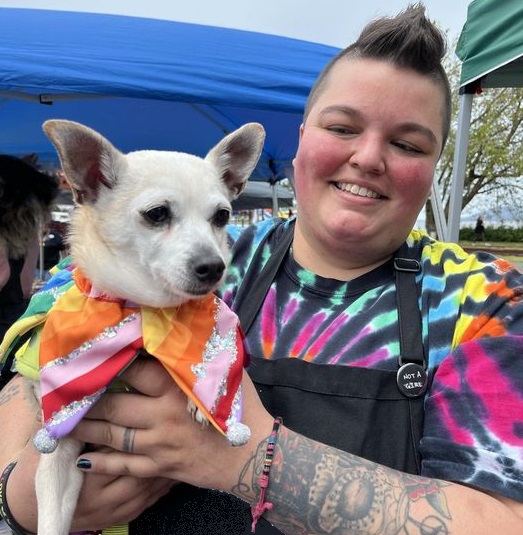

Life in the Dog World as a Member of the LGBTQ Community
Why the LGBTQ Community Takes Pride in Pet Ownership
When Your Pets Are Your Chosen Family
On National Dog Day: Why Queer People Love Their Dogs
Advocate Poll: Gays More Likely to Own Pets
Relationship
Between Pets and Their LGBTQ Owners
Queer Women Own the Most Cats
Lesbian Cats: Unlikely Love Story
Thankful for Your Pets
Lesbian and Sapphic Celebrity Cat Ladies
Emotional Support and Coping Mechanism - Many LGBTQ individuals report that
their pets are a vital source of support in navigating daily stressors,
including discrimination, rejection, and microaggressions. Pets can offer a
sense of stability and purpose, especially for those facing marginalization or
lacking traditional family support structures. They provide unconditional love
and companionship, which can be particularly impactful for transgender
individuals or others who may face rejection from some human relationships.
Chosen Family - The concept of "chosen family" is significant in the LGBTQ
community, representing the strong bonds formed outside of biological family.
Pets are often considered integral members of this chosen family, providing
emotional support and filling the role of a beloved family member.
Mental Health Benefits - Pets have been shown to have a positive impact on
mental health within the LGBTQ community. They can help reduce stress, enhance
self-esteem, improve social connections, and provide anxiety relief. This effect
has been observed in various age groups, including LGBTQ youth and older adults.
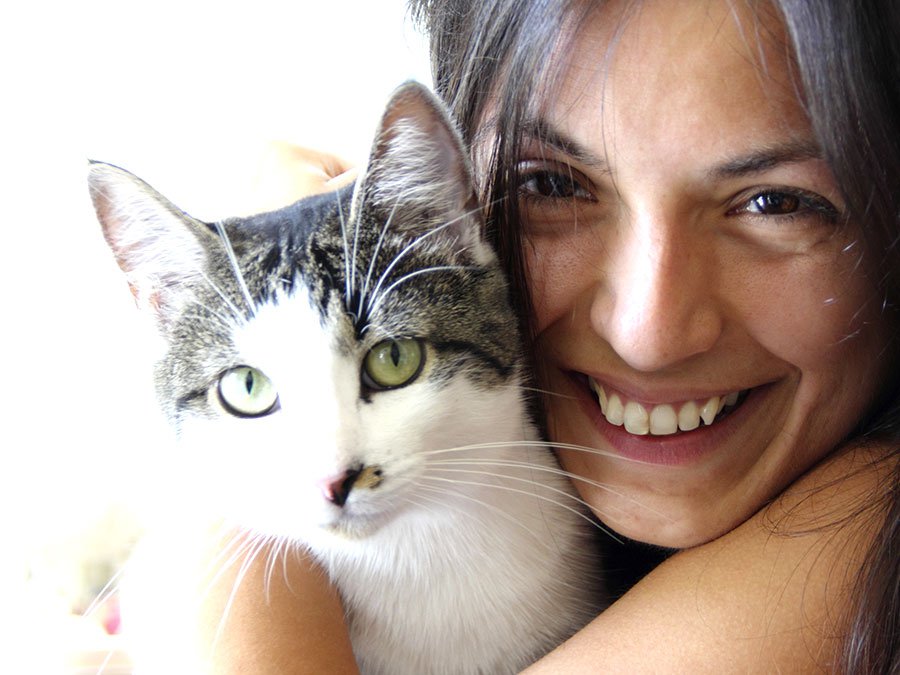
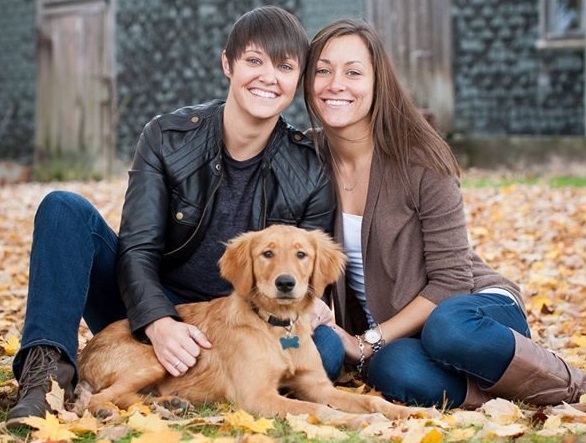
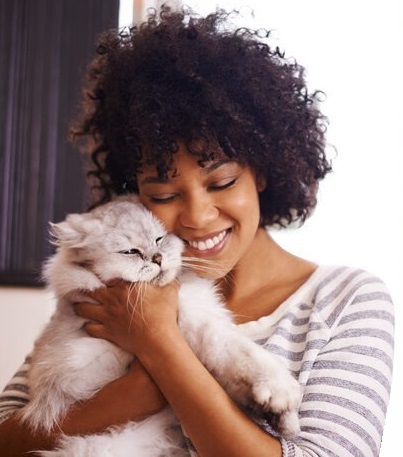
Shared Experiences - There's a sense of empathy and connection between LGBTQ
individuals and animals, possibly stemming from shared experiences of
marginalization. This can lead to a higher likelihood of adopting pets from
shelters.
Importance of Pets in Challenging Times - Pets can play a crucial role in
helping LGBTQ individuals navigate difficult periods, including experiences of
homelessness, trauma, and mental health challenges. During the COVID-19
pandemic, pets were particularly important in combating isolation and providing
emotional support.
While the benefits of pet ownership are widely acknowledged, it's also important
to consider the potential stressors, such as financial costs and concerns about
the animal's health. The bond between LGBTQ individuals and their pets is often
a source of significant emotional support, belonging, and mental well-being,
contributing to their resilience in facing various life challenges.
Fairy Dog
On National Dog Day: Why Queer People Love Their Dogs
Advocate Poll: Gays More Likely to Own Pets
Relationship
Between Pets and Their LGBTQ Owners
Queer Planet: Sexual Diversity in the Animal Kingdom
Queer Women Own the Most Cats
Can Cats be Gay, Lesbian or Bisexual?
Gay Couple and Their Dog
Meet Michael
Stücke: Shepherd of World's First Flock of Gay Sheep
Pet Industry Statistics for 2021
Sexy Australian
Firefighters and Their Pets
Stuff Lesbians Love: Cats
Advocate
Poll: Gays More Likely to Own Pets
Devotion
to Our Pets
Seven out of 10 LGBTQ adults own pets,
compared with 63% of heterosexual
adults, according to a new poll by
Harris Interactive. The same poll shows
that 90% of gay pet owners say their pet
is a member of their family, and two
thirds have bought their pets presents
for the holidays, according to a press
release. The 2007 poll, in conjunction
with Witeck-Combs, surveyed 2,455 US
adults, of whom 158 identified as LGBTQ.
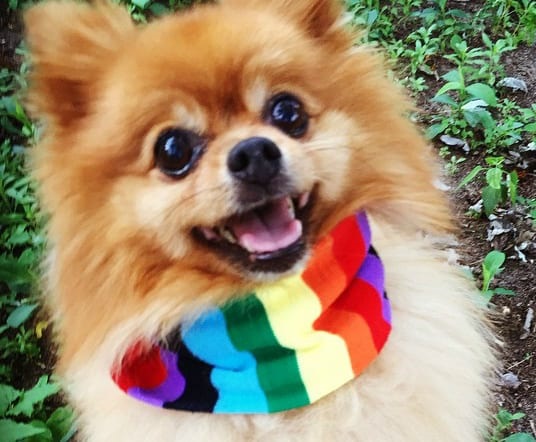 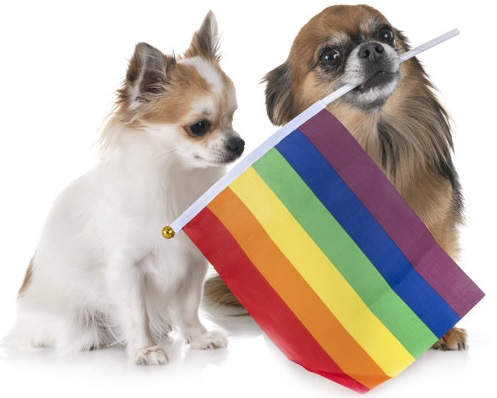
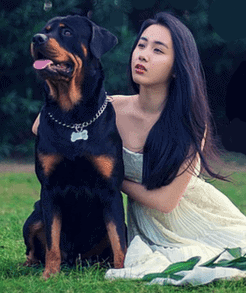
“Americans have well-deserved
reputations as animal lovers and pet
owners, and our latest findings
underscore that LGBTQ
Americans are among the most avid,”
Wesley Combs, president of Witeck-Combs
Communications Inc., said in the
statement. “Moreover, the holiday season
reminds us of those closest to us,
including our devotion to our pets.
Smart marketers will recognize
that gay households truly are
trendsetters in animal ownership and
loving care.”
The poll shows that LGBTQ pet owners are
slightly more likely than heterosexual
pet owners to have cats: 63% of LGBTQ
respondents owned a cat, compared with
52% of heterosexuals. However, the
inverse was found with dogs: 71% of
straight pet owners said they owned a
dog, compared with 63% of LGBTQ pet
owners.
[Source: Advocate Magazine,
Witeck-Combs,
2007]
Queer Animals Are
Everywhere
Dog Rescue and the LGBTQ Community
Life in the Dog World as a Member of the LGBTQ Community
Why the LGBTQ Community Takes Pride in Pet Ownership
When Your Pets Are Your Chosen Family
On National Dog Day: Why Queer People Love Their Dogs
Advocate Poll: Gays More Likely to Own Pets
Relationship
Between Pets and Their LGBTQ Owners
Queer Women Own the Most Cats
Lesbian and Sapphic Celebrity Cat Ladies
Lesbian Cats: Unlikely Love Story
Thankful for Your Pets
LGBTQ Pet Owners
Giving Pets a Happy Home
Over 70% of LGBTQ adults have pets,
compared to 60% of straight adults. If
you’re a pet owner yourself, you
probably already know that the LGBTQ
community is extremely pet-friendly:
according to a recent poll, over seventy
percent of LGBTQ adults are pet owners,
compared with only sixty percent of
straight adults. For many of these LGBTQ
“pet parents”, cats and dogs rescued
from animal shelters can make the best
pets, providing a loving companion while
supporting local animal rescue and
giving pets a happy home.
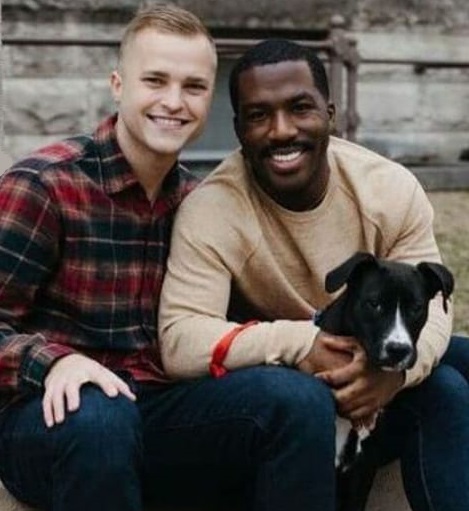
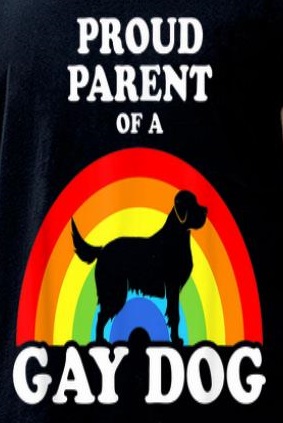
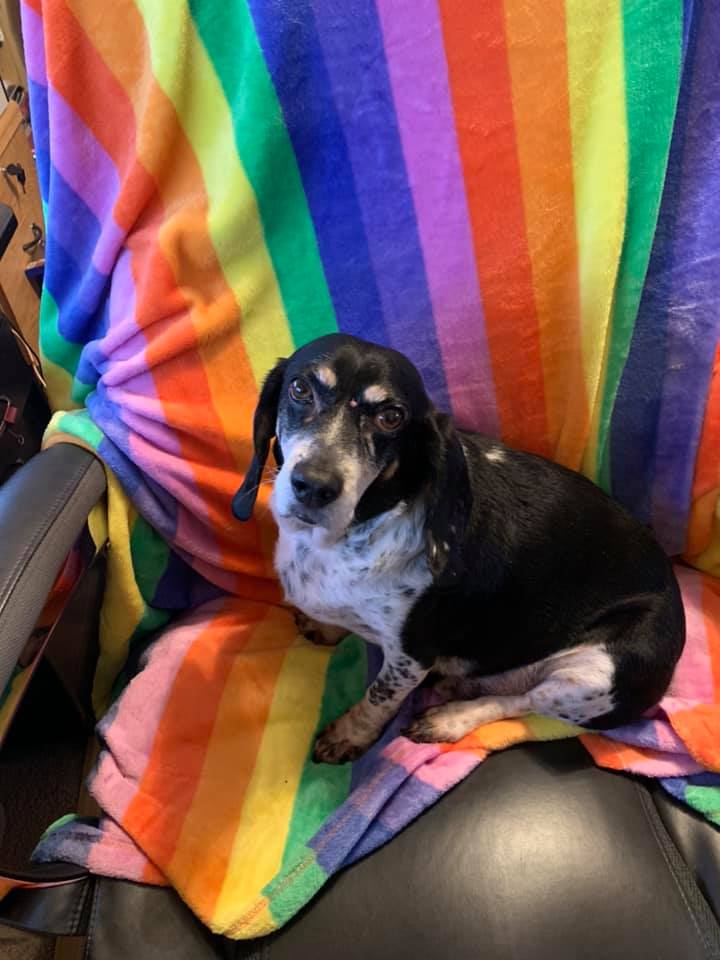

The number of LGBTQ pet owners is
continuing to grow, and as the problems
with breeders and pet stores keep
surfacing, we’re sure to see even more
members of the community turn toward
adoption and rescue. If you’re thinking
about adding a pet to your life, skip
the pet store and head straight to your
local animal shelter to take home some
of the best pets: they’ll reward you
with a lifetime of love and
companionship.
Visiting a shelter for the first time,
many LGBTQ pet parents are struck by the
number of homeless animals and are moved
to provide a better life for one (or
more!) of them. While there are many
reasons pet owners might choose to adopt
a cat or a dog from a shelter, some
particular benefits that might drive
LGBTQ owners toward adoption:
Empathy: LGBTQ pet owners understand
what it’s like being treated as an
“outsider.” LGBTQ individuals may have
to face intolerance, cruelty, and even
neglect in their lives, and ending these
struggles for a rescue animal can create
a lifelong bond.
LGBTQ-Owned Pet
Shops
Queer Planet: Sexual Diversity in the Animal Kingdom
Humpback Whales Photographed Having Sex (Gay Sex) for the First
Time
Dog Celebrating Pride
Why the LGBTQ Community Takes Pride in Our Pets
Smart Gay Life: Best Pets for LGBTQ Pet
Owners
Thankful for Your Pets
Gay Swan Couple Built a Nest Together: Zoo Gave Them 3D-Printed Eggs to Raise
Same-Sex Penguin Couples
Elliot Page to Voice New Documentary About Gay Animals
Seriously Gay Animals
Research: Influence of Companion Animals
on Quality of Life of Gay and Bisexual
Men
Can Dogs be Queer?
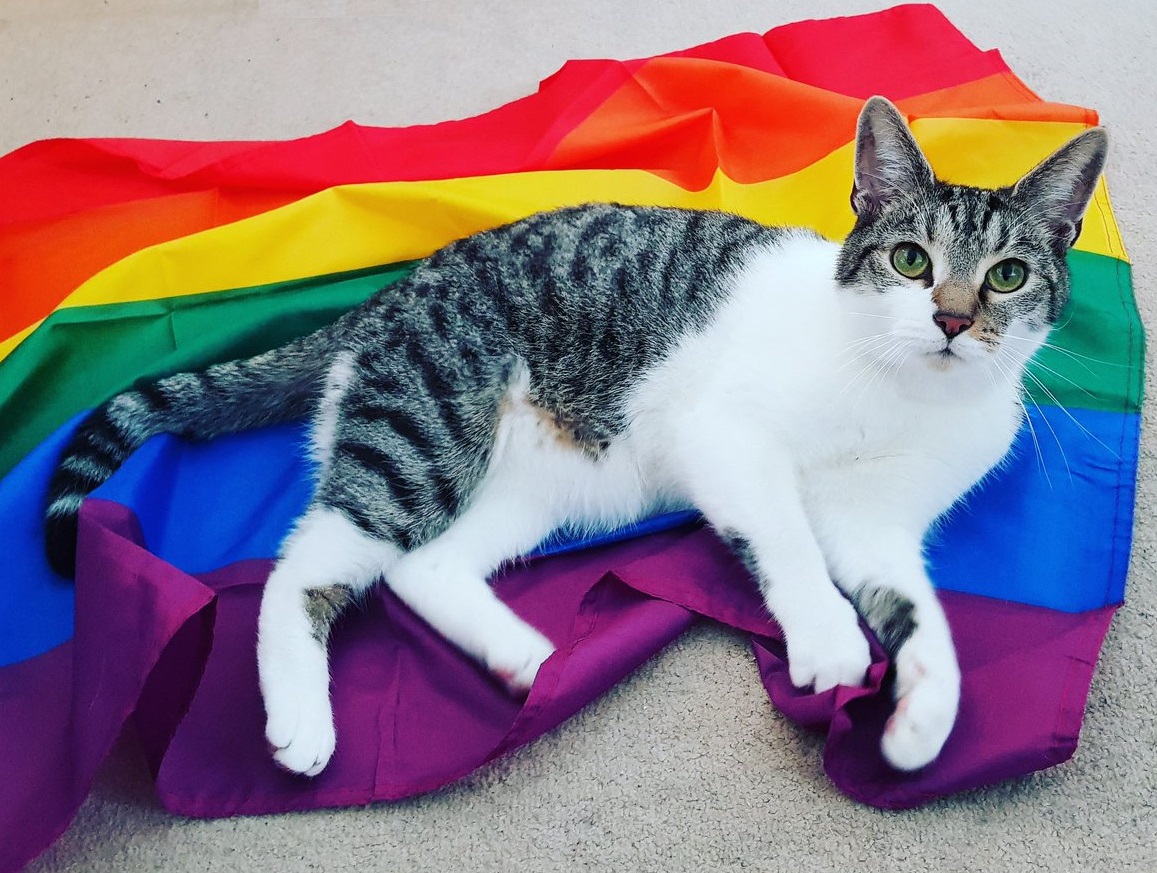
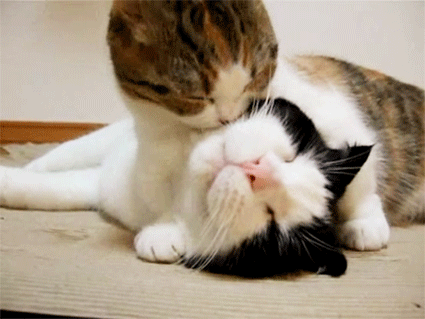
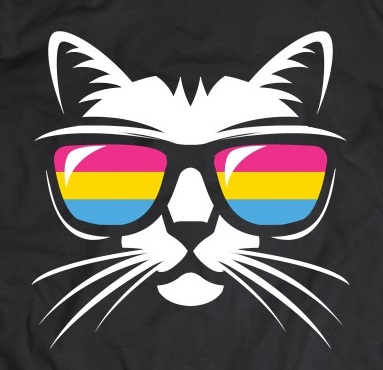
Health: There have been countless
studies on the connection between owning
a pet and living a healthy life. Whether
it’s the exercise you get from taking a
dog for a long walk or the mental health
boost provided by a cat curled up on
your lap, it’s clear that adding a pet
to your home enriches your life and
theirs.
You Look Great: this may not be the
first benefit you think of when rescuing
a shelter pet, but it’s undeniable that
someone who saves an animal suddenly
becomes much more attractive. Kindness
and compassion look good on anyone.
LGBTQ-Owned Pet Shops
Why the LGBTQ Community Takes Pride in Our Pets
Same-Sex Flamingo Couple at San Diego Zoo Safari Park
Hatch Chick
Queer Planet: Sexual Diversity in the
Animal Kingdom
Smart Gay Life: Best Pets for LGBTQ Pet
Owners
Same-Sex Penguin Couples
Australian Firefighters
and Their Pets
Adorable Intersex Kitten,
Born With No Sex Organs, Looking for a
Home
Pets Provide Support to LGBTQ Seniors
Fairy Dog
Companies That Are Dog-Friendly and
LGBTQ-Friendly
Seriously Gay Animals
Research: Influence of Companion Animals
on Quality of Life of Gay and Bisexual
Men
Can Dogs be Queer?
Thankful for Your Pets
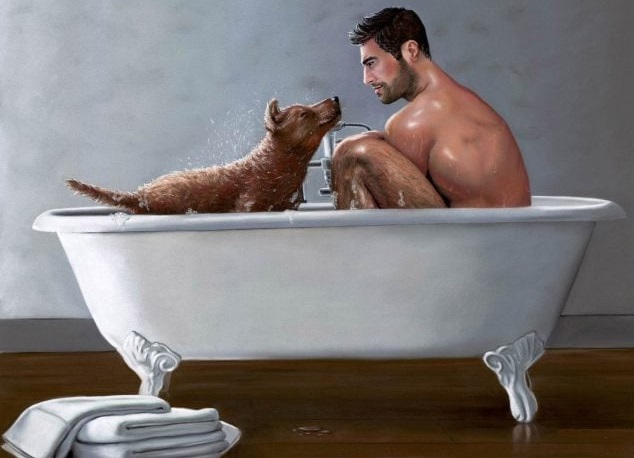
Relationship
Between Pets and Their LGBTQ Owners
Because
LGBTQ folks tend to have less social
support than their heterosexual peers,
perhaps having a companion animal would
contribute to quality of life for sexual
minorities.
There are
pros and cons to owning a pet as a
marginalized individual. A new
study analyzes the relationship between
pets and their young LGBTQ owners. The
goal of this particular study is to
focus on the younger LGBTQ population
and to examine how human-animal
interactions might impact a person's
experience and well-being when faced
with victimization over their sexual
orientation or identity.
Since 2018, an ongoing study at the VCU
School of Social Work has been analyzing
the way pets impact the lives of young
LGBTQ individuals. From animal-assisted
therapy practices to having therapy dogs
in schools to reduce anxiety, there are
many mental health benefits to
animal-human interactions. While the
majority of current research is being
focused on people who are not
discriminated against or marginalized by
society, this specific study could bring
more clarity to how pets positively and
negatively impact the lives of young
LGBTQ people.
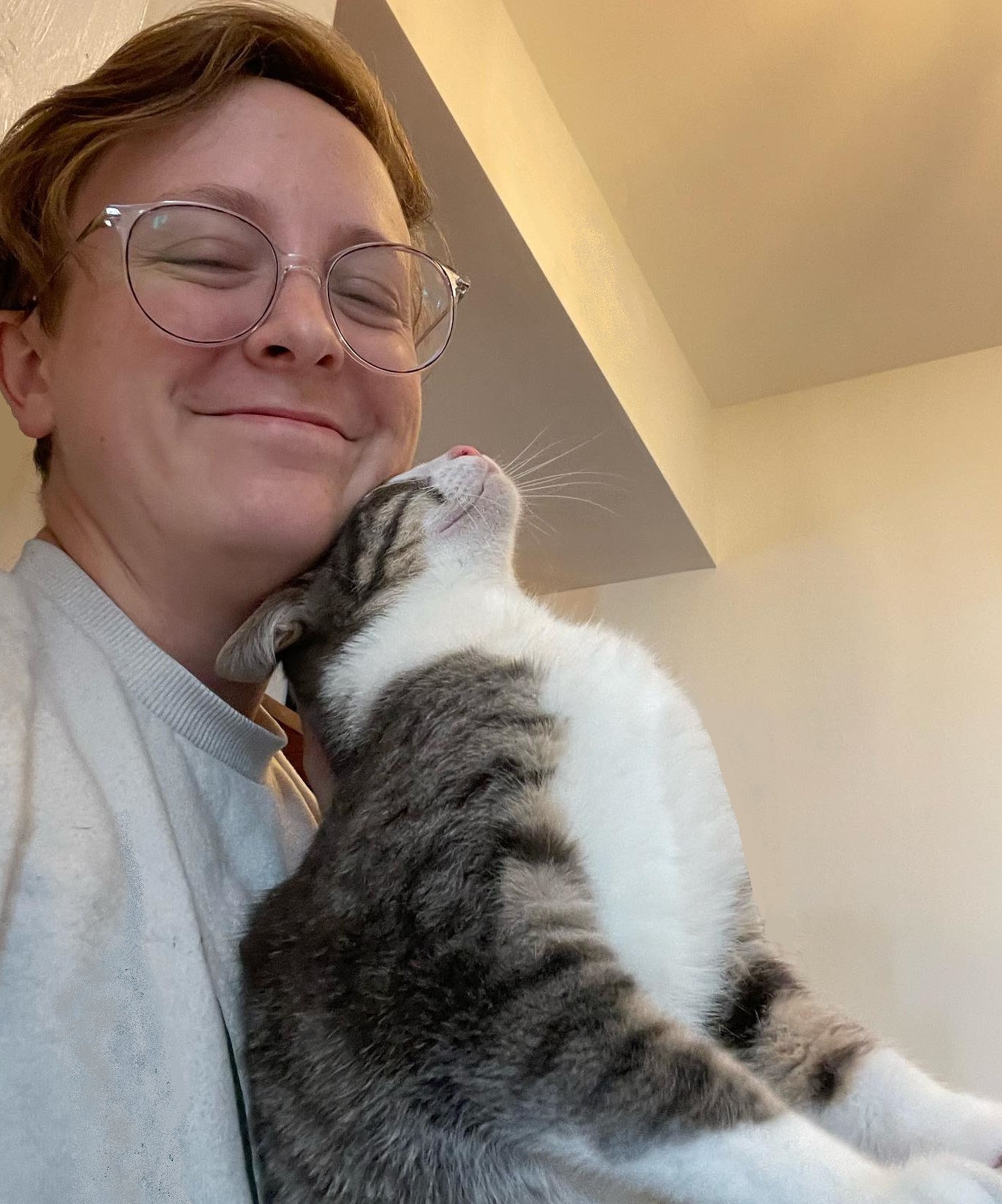
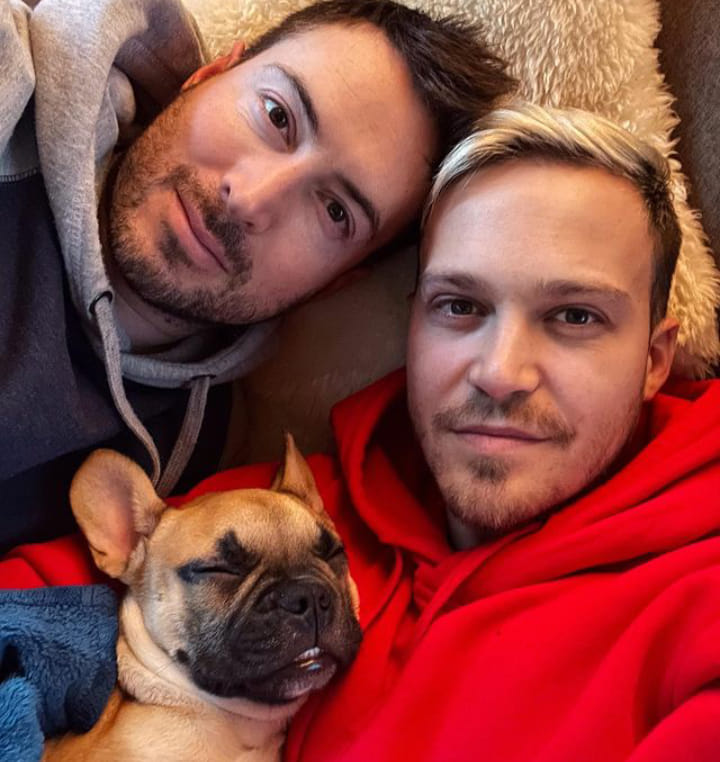
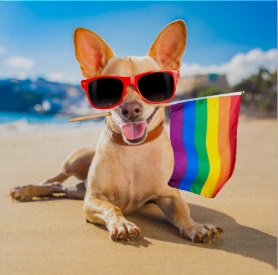
Dog Celebrating Pride
Advocate Poll: Gays More Likely to Own Pets
Relationship
Between Pets and Their LGBTQ Owners
Queer Women Own the Most Cats
Lesbian and Sapphic Celebrity Cat Ladies
Elliot Page to Voice New Documentary About Gay Animals
Gay Couple
and Their Dog
Australian Firefighters
and Their Pets
Meet Michael
Stücke: Shepherd
of World's First
Flock of Gay
Sheep
Pet Industry Statistics for 2021
Stuff Lesbians Love: Cats
Dog Rescue and the LGBTQ Community
Lesbian Cats: Unlikely Love Story
This
study began in 2018 and has since
focused on the role that animals
specifically play in the lives of LGBTQ
youth between the ages of 15-21 years
old. Due to the ongoing COVID-19
pandemic, many of these interviews with
individuals have been conducted via
video conferences. The study parameters
have even expanded, allowing for
questions about what it's been like to
have pets during the coronavirus
lockdown. Interviews were conducted with LGBTQ
individuals on their experiences with
pets and how that has impacted their
lives.
Questions in these interviews include
things relating to: Detailing their
relationship with their pets. Any
stressors or benefits to living with a
pet. The impact of pets during
coronavirus lockdown.
McDonald explains to Commonwealth Times:
"We added questions about experiences
with pets during the pandemic because we
wanted to expand our focus to understand
how pets might support gender and sexual
minority youth who were forced to live
at home in a family environment that
might not affirm their identity."

Queer Animals Are
Everywhere
Same-Sex Penguin Couples
Popular Gay Slang Inspired by the Animal
Kingdom
Can Cats be Gay, Lesbian or Bisexual?
First Humpback
Whales Observed Having Sex are Both Male
Queer Planet: Sexual Diversity in the Animal Kingdom
Lots of Animals are Gay, Experts Find
Pets Provide Support to LGBTQ Seniors
Companies That Are Dog-Friendly and
LGBTQ-Friendly
Seriously Gay Animals
Research: Influence of Companion Animals
on Quality of Life of Gay and Bisexual
Men
Can Dogs be Queer?
Thankful for Your Pets
Does human-animal interaction impact a
person’s experience and well-being?
Absolutely. Over the years, many studies
have proven the benefits of human-animal
interactions. From animal-assisted
therapy practices to having therapy dogs
in schools to reduce anxiety - there are
many mental health benefits to
animal-human interactions.
A similar study has been done on the
impact of pets in the lives of older
LGBTQ individuals. A different 2018
study explored the role of pets in the
lives of lesbian, gay, bisexual, and
transgender adults over the age of 50.
This particular study addressed the
following questions: How does living
with a pet impact perceived social
support and social network size? How do
LGBTQ older adults describe the meaning
of pets in their lives?
In this
study, over 59 percent of participants
reported that they have pets and
described them in affectionate terms,
often referring to them as family. Many
individuals classified their pets as
"supportive" either by offering
companionship or keeping them active and
socializing. Many participants explained
that their pets help them cope with some
form of physical or mental health
condition.
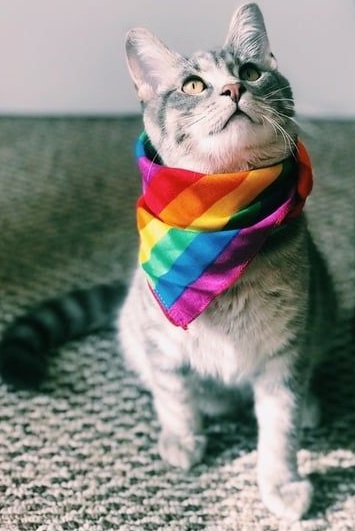
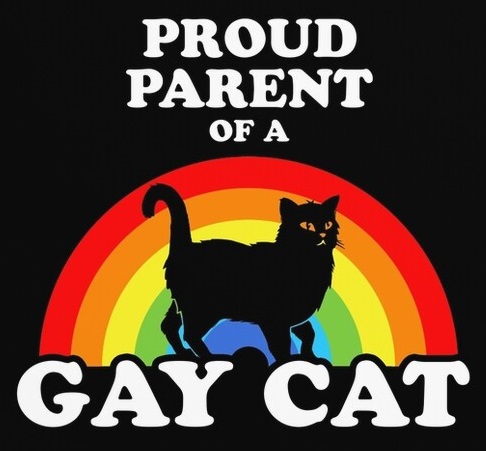 
Dog Celebrating Pride
Queer Planet: Sexual Diversity in the Animal Kingdom
Two Flamingo Dads Successfully Hatch Adopted Chick Together: Congratulations to
Curtis and Arthur
Dolphins Have Lots of
Lesbian Sex Due to Evolved Clitorises
Pets Provide Support to LGBTQ Seniors
Fairy Dog
Two Male Penguins Welcome Hatchling as
New York Zoo's 1st Same-Sex Foster
Parents
Companies That Are Dog-Friendly and
LGBTQ-Friendly
Seriously Gay Animals
Research: Influence of Companion Animals
on Quality of Life of Gay and Bisexual
Men
Can Dogs be Queer?
Lesbian and Sapphic Celebrity Cat Ladies
How is
this study different? The goal of this
particular study is to focus on the
younger LGBTQ population and to examine
how human-animal interactions might
impact a person's experience and
well-being when faced with victimization
over their sexual orientation or
identity. Not only that, but this study
takes a look at both the positive and
negative impacts of having a pet as an
LGBTQ individual.
The vast
majority of current research focuses on
people who are not discriminated against
or marginalized by society. According to
the researchers, pets may lead
marginalized people to "a path of
financial stress and housing
instability," which are issues the LGBTQ
community already struggles with. "Pets
can better people's lives," Richards
explains to Commonwealth Times, "but
it's also been interesting to see the
ways in which pets can be stressors for
people experiencing homelessness and
financial insecurity."
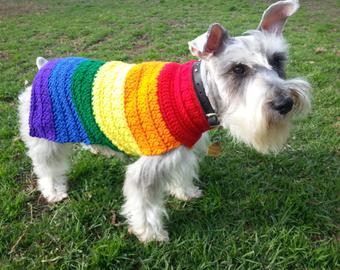
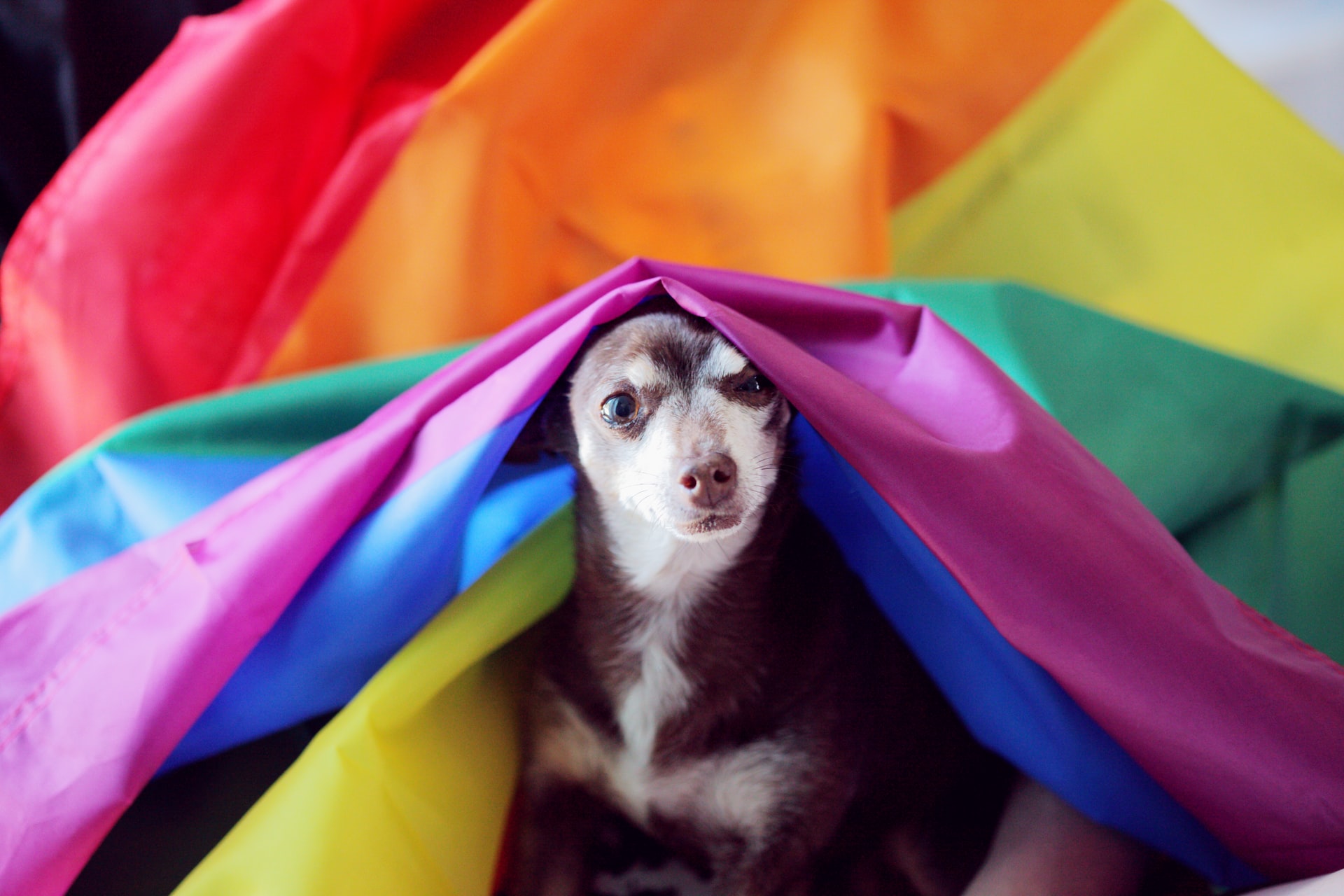
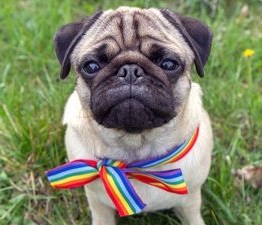
Shelby McDonald, one of the lead
associate professors on the study, has
dedicated the last decade of her life to
researching the role of animals in the
lives of children and has recently
turned that focus toward LGBTQ youth.
As of September 2, the researchers have
conducted 164 initial interviews. O'Ryan,
one of the student researchers,
explains: "We've collected a pretty
diverse bunch, but the participants we
interviewed have been largely white,
cisgender, bisexual women. I wish we had
the chance to interview more people of
color and more people from diverse
gender identities."
[Source:
Jamie Bell, Big Think, September 2020]
Advocate Poll: Gays More Likely to Own Pets
Relationship
Between Pets and Their LGBTQ Owners
Same-Sex Flamingo Couple at San Diego Zoo Safari Park Hatch Chick
Can Cats be Gay, Lesbian or Bisexual?
Elliot Page to Voice New Documentary About Gay Animals
Queer Women Own the Most Cats
Lesbian Cats: Unlikely Love Story
Popular Gay Slang Inspired by the Animal
Kingdom
Australian Firefighters
and Their Pets
Meet Michael
Stücke: Shepherd of World's First Flock of Gay Sheep
Gay Couple and Their Dog
Pet Industry Statistics for 2021
Dog Rescue and the LGBTQ Community
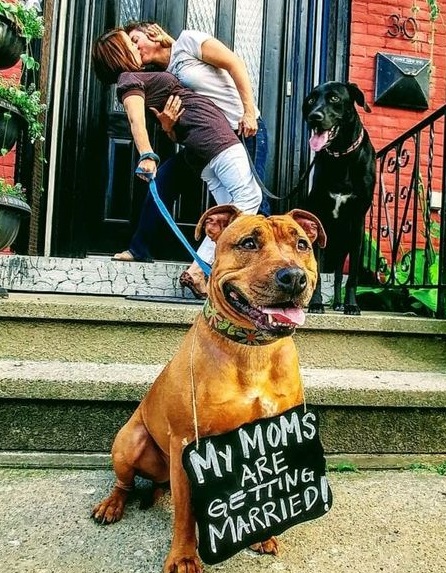
Paws and Pride
Love Story Between LGBTQ Folks and Their Fur-bulous Companions
When it comes to love and companionship, LGBTQ individuals have a secret weapon
that can melt even the coldest of hearts: their pets. It's no coincidence that
the LGBTQ community and their furry friends make the purr-fect match. So, let's
dive into the whimsical world of LGBTQ+ pet owners and their endless love for
their four-legged confidants.
The RuPaul of the Dog Park
You've heard of the "Crazy Cat Lady," but have you met the "Fabulous Feline
Gentleman" or the "Dog Park Diva"? LGBTQ pet owners have a reputation for
turning everyday pet activities into a fabulous spectacle. From dressing their
pets in miniature Pride parade outfits to teaching them how to strike a fierce
pose, these owners aren't afraid to flaunt their pet's sassiness. Let's face it,
when your dog has a wardrobe that rivals your own, you're in a league of your
own.


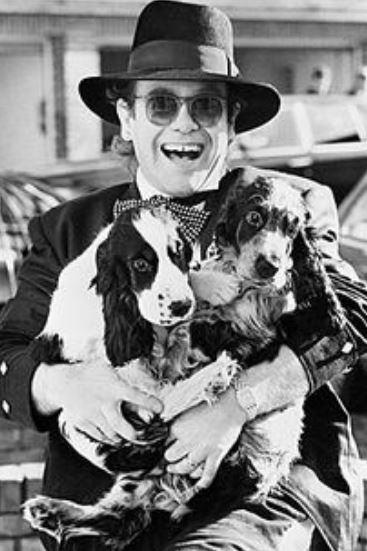

Thankful for Your Pets
Queer Planet: Sexual Diversity in the Animal Kingdom
Advocate Poll: Gays More Likely to Own Pets
Relationship
Between Pets and Their LGBTQ Owners
Queer Women Own the Most Cats
Gay Couple
and Their Dog
Lesbian and Sapphic Celebrity Cat Ladies
Australian Firefighters
and Their Pets
Pet Industry Statistics for 2021
Stuff Lesbians Love: Cats
Dog Rescue and the LGBTQ Community
Dog Celebrating Pride
Fairy Dog
The Ultimate "Paw-sitive" Support System
Life can be a whirlwind, and it's during these times that LGBTQ pet owners
realize their pets are the true therapists of the household. As any therapist
would tell you, listening is key, and our furry friends excel at this. They're
always there to lend a paw, a sympathetic ear, or a comforting snuggle when
things get "ruff."
The Pet Name Paradox
When it comes to naming their pets, LGBTQ individuals are known for their
creativity. We're talking about names like "Sir Fluffington Von Cuddlekins" for
a tiny Chihuahua and "Queen Beyoncé Whiskerbottom" for a regal Persian cat. It
seems that the more fabulous the pet, the more extravagant the name.
Paw-ty Animals Extraordinaire
LGBTQ folks are no strangers to a good time, and they've found in their pets the
perfect party partners. Not only do pets make the best listeners, but they also
know how to throw a mean party. Just ask any LGBTQ pet owner about their pet's
birthday party, complete with a doggy disco ball, catnip piñata, and a ferret
fashion show.
Pet Pride Flags and Parades
Every Pride parade has its grand marshal, and in LGBTQ households, the pets
proudly wear the tiara (or bowtie) as the leaders of the household. There's
nothing quite like seeing pets donning their mini Pride flags and strutting
their stuff in pride parades. They march to their own beat, usually marked by
the sound of jingling tags.
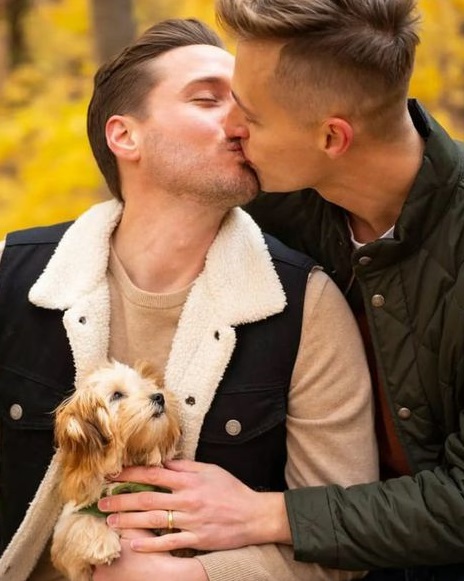
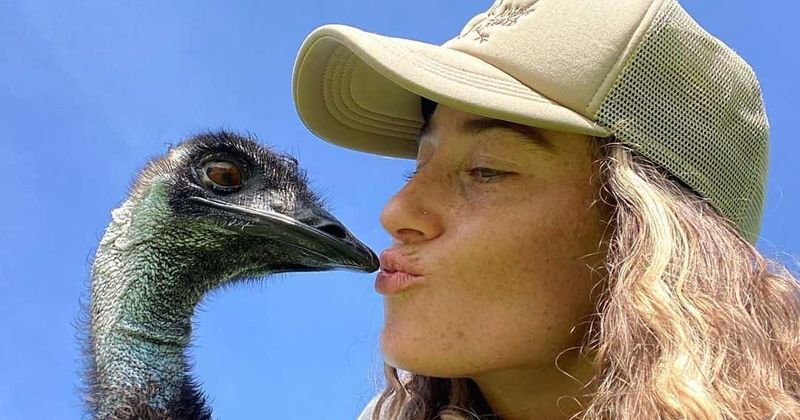

Love Unconditionally
In a world where acceptance and love are cherished values, LGBTQ pet owners and
their fur babies embody it perfectly. The bond between them is built on mutual
love, support, and endless cuddles, regardless of who you are or where you come
from.
The connection between LGBTQ individuals and their pets is one of laughter,
love, and boundless affection. They've found in their pets a family member, a
confidant, and a best friend, all wrapped up in a fluffy, furry package. This
perspective on LGBTQ people and their pets is a heartwarming reminder that love
knows no boundaries, not even species!
Elliot Page Voices New Documentary About Gay Animals
Two Flamingo Dads Successfully Hatch Adopted Chick Together: Congratulations to
Curtis and Arthur
Smart Gay Life: Best Pets for LGBTQ Pet
Owners
Same-Sex Penguin Couples
Humpback Whales Photographed Having Sex (Gay Sex) for the First
Time
Dolphins Have Lots of
Lesbian Sex Due to Evolved Clitorises
Pets Provide Support to LGBTQ Seniors
Lesbian Cats: Unlikely Love Story
Two Male Penguins Welcome Hatchling as
New York Zoo's 1st Same-Sex Foster
Parents
Companies That Are Dog-Friendly and
LGBTQ-Friendly
Seriously Gay Animals
Research: Influence of Companion Animals
on Quality of Life of Gay and Bisexual
Men
Can Dogs be Queer?
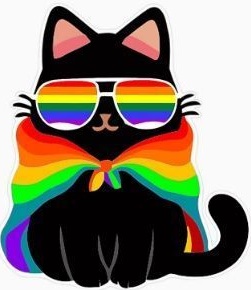
Naming Our Pets
Fun and Fabulous Pet Names
LGBTQ pet
owners are notorious for bestowing unique and creative names on their furry
companions. Pet names drawn from LGBTQ symbols include examples such as
Lavender, Rainbow, Queenie, Dorothy, Lola, Pinky, Ace, Bear, Butch, Otter, and
Twink. There are several incidents of pets named Boy George, George Michael,
Sally Ride, Patty LaBelle, and Liberace. Sometimes the names are fancy,
flamboyant, lengthy, multi-syllabic monikers that resemble the names of drag
queens. Sometimes the names are posh, glamorous, and sophisticated.
Sometimes the names are from popular media. Sometimes the names are from
famous people in history and literature. Sometimes the names are a tribute
or homage. Consider these suggestions:
Males Pet Names
Oscar - Oscar Wilde, renowned gay writer
Gilbert - Gilbert Baker, designed first rainbow flag in 1978
Todd - Asexual character in "Bojack Horseman"
Waylon or Smithers - Waylon Smithers, gay character in "The Simpsons"
Barney - Barney Frank, gay
congressman from Massachusetts
Pepper - One of the gay penguins from the "Parks and Rec" episode "Pawnee Zoo"
Elton - Elton John, gay pop star
Sylvester - Gender bending
disco singer
Harvey - Harvey Milk, first openly gay elected California official in late 70s
Jack - Jack McFarland of "Will & Grace"
Ginsberg - Allen Ginsberg, gay poet and outspoken LGBTQ advocate
Renly - "Game of Thrones" character
Elliot - Trans actor Elliot Page of "Juno"
Titus - "Kimmy Schmidt" character
Tennessee - Tennessee Williams,
gay author of "Streetcar Named Desire"
Freddy - Freddy Mercury, LGBTQ
music superstar
Alec or Obi-Wan - Sir Alec Guinness, bisexual actor, played Obi-Wan Kenobi in
"Star Wars"
Levi - Levi Schmitt, gay character in "Grey's Anatomy"
Ru - Drag queen RuPaul
Pete - Pete Buttigieg, LGBTQ politician
Rocky - "Rocky Horror Picture Show"
Ray - "Archer" character Ray Gillette
Karamo - Karamo Brown of "Queer Eye," first queer Black man cast in reality show
in 2004
Bowie - David Bowie, bisexual pop
music icon


Female Pet Names
Nyssam - Bisexual character in Doctor Who
Sally - Sally Ride, lesbian
astronaut
Marsha - Marsha P Johnson, Black trans woman from Stonewall Riots
Liza - Liza Minelli, LGBTQ icon
Gertrude or Trudy - Gertrude Stein, LGBTQ novelist and poet
Edna - Dame Edna Everage, drag
performer
Sappho - Ancient Greek poet from Lesbos
Billie - Billie Jean King (lesbian
athlete), Billie Eilish (queer musician)
Molly - Molly Cyrus, bisexual pop
music star
Babs - Barbra Streisand, LGBTQ
icon
Asami - Asami Sato, bisexual character in "The Legend of Korra"
Stewie - Kristen Stewart, lesbian actor
Gaga - Lady Gaga, LGBTQ musical idol
Sylvia - Sylvia Rivera, Stonewall activist
Chablis - Lady Chablis, trans
character from "Midnight in Garden of Good & Evil"
Lily - Lily Tomlin, lesbian actor
Frida - Frida Kahlo, celebrated bisexual artist
Tallulah - Tallulah Bankhead,
bisexual actor
Mandy - Song by Barry Manilow
Jinx - Jinx Monsoon, drag queen
Sophia or Laverne - "Orange is the New Black" character played by trans actor
Laverne Cox
Rosie - Rosie O'Donnell, lesbian
actor and comedian
Nia - Nia Nal of "Supergirl," first trans superhero on TV
Trixie - Trixie Mattel, drag queen
Judy - Judy Garland, LGBTQ icon
Tessa - Tessa Thompson, queer actress played several queer characters
Wanda - Wanda Sykes, lesbian
comedian
Dolly - Dolly Parton, LGBTQ icon
Lilith - Sinister goddess figure from Jewish mythology
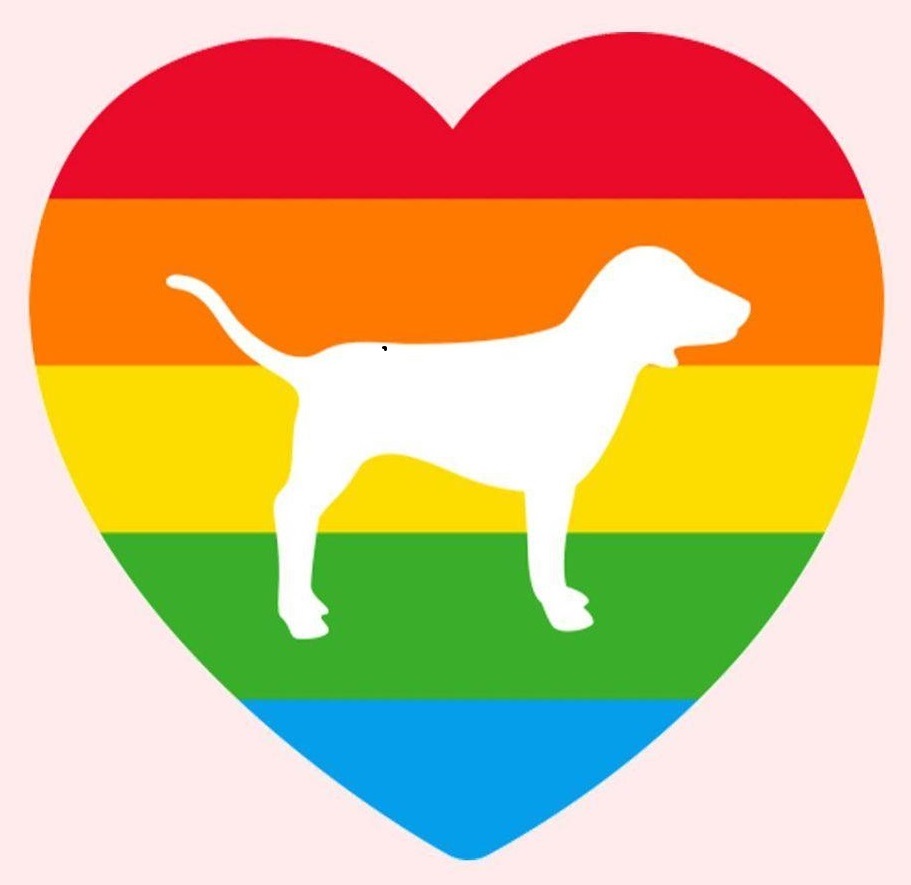
Pet Industry Statistics
Pets by the Numbers
Pets have taken over our lives and our
hearts. Since the rise of technology,
people have started to document all of
the adorable antics their pets have been
doing, along with the obligatory photos
of their pets wearing adorable outfits.
Due to the rise of social media, people
have shared more than their fair share
of cat and dog videos to make each other
feel warm and fuzzy. While social media
has connected all of our friends and
families, one can help but notice more,
and more of our personal friends are
posting photos of their pets. That being
said, have you ever thought to yourself,
“how many pets are there in the US?” Or
have you ever wanted to settle the
famous cat and dog debate once in for
all?
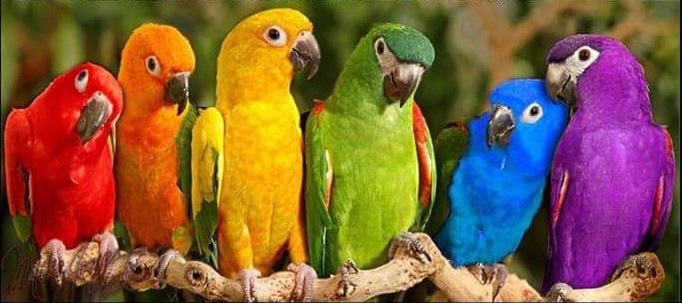
Our love of pets has left a paw print in
our daily lives. From dominating social
media, reshaping the pet food industry,
creating new pet trends, and raising
awareness on the need to adopt rather
than buy. Pet owners will go to great
lengths to ensure their pets are eating
the best food and living their best
life. Cats and dogs are the favorite pet
for most households, but people have
been more open to exotic pets to call
their own throughout the years.
Top Pet Statistics According to a 2020
survey by the American Pet Products
Association covering pet ownership
statistics, 67 percent of households are
pet owners. To put that into
perspective, about 85 million families
in the US own a pet. The most
common/popular pets in America (by
volume) are as follows:
--Fish: 142 million freshwater fish and
9.6 million saltwater fish
--Cats: 88.3 million cats
--Dogs: 74.8 million dogs
--Birds: 16 million birds
--Small Animals: 24.3 million small
animals (hamsters, mice, gerbils, guinea pigs)
--Horses: 13.8 million horses
--Reptiles: 13.4 million reptiles
(turtles, snakes, lizards)
Among the cuddly varieties, the two most
popular companion animals are dogs and
cats. Of households with pets, 71% have
dogs and 55% have cats. Community
Marketing Inc. has conducted an annual
LGBTQ community marketing survey and
found that 41% of gay men have dogs and
27% have cats.
[Source: Gay Travel, Pet Ownership
Statistics]
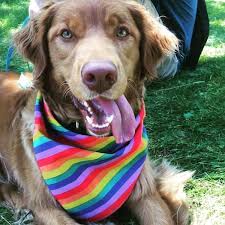 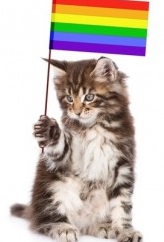 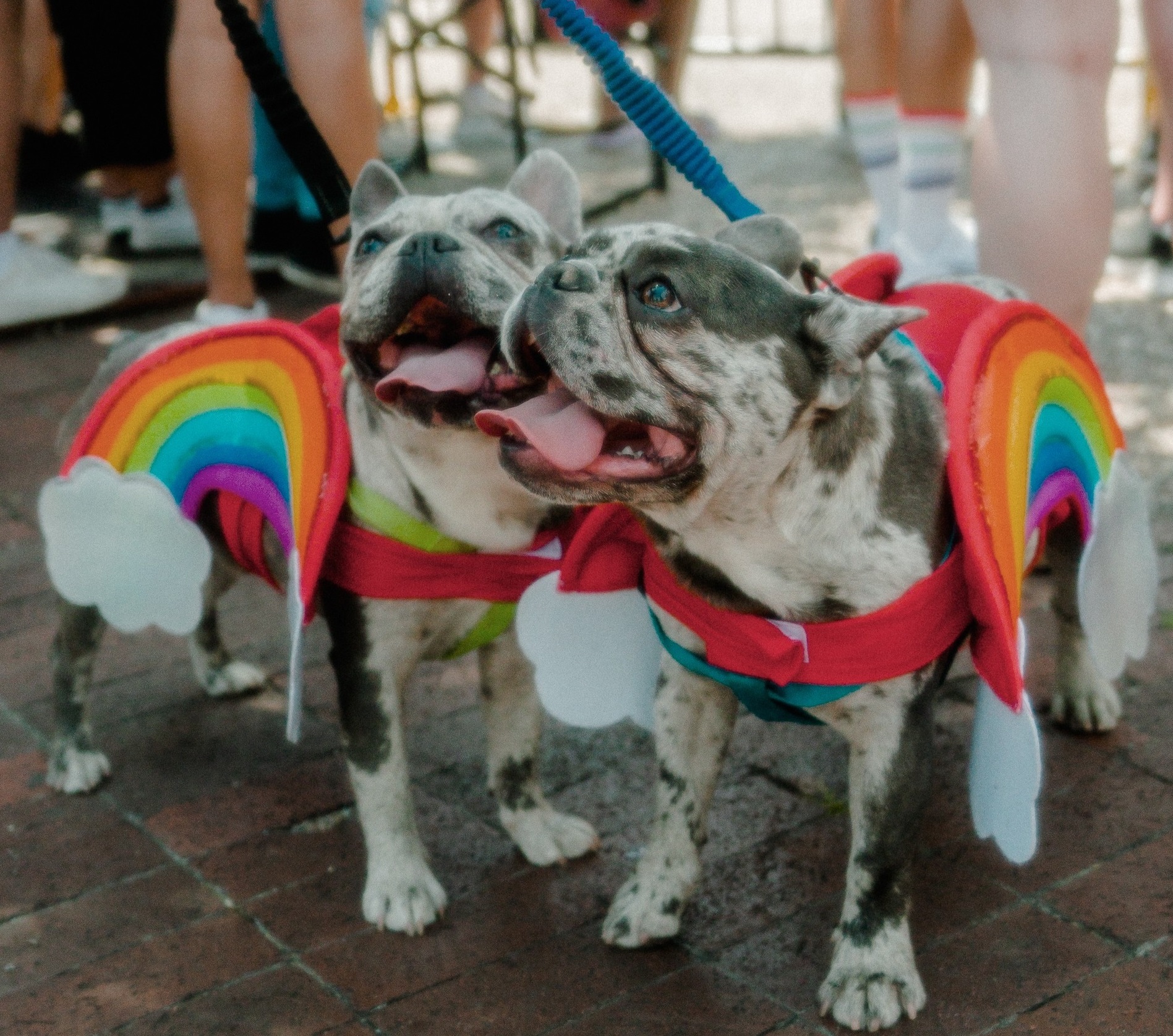
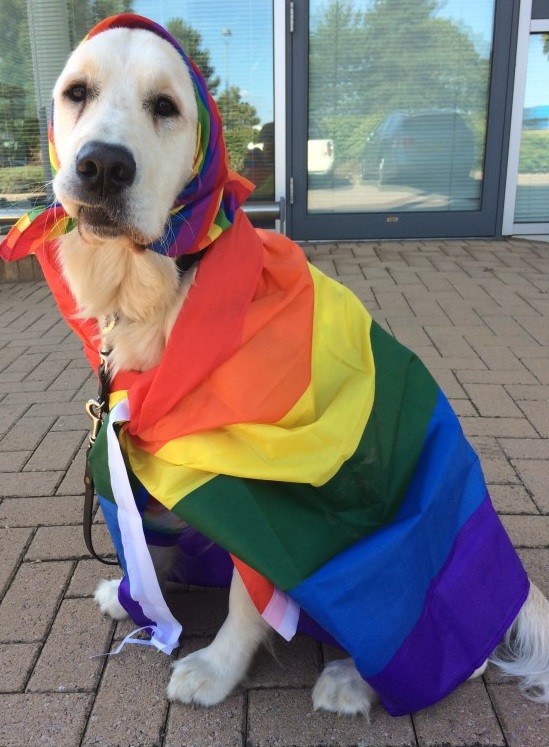
Queer Women Own the Most Cats
Gay Couple and Their Dog
Pet Industry Statistics for 2021
Adorable Intersex Kitten,
Born With No Sex Organs, Looking for a
Home
Stuff Lesbians Love: Cats
Dog Rescue and the LGBTQ Community
Lesbian and Sapphic Celebrity Cat Ladies
Smart Gay Life: Best Pets for LGBTQ Pet
Owners
Same-Sex Penguin Couples
Thankful for Your Pets
Same-Sex Flamingo Couple at San Diego Zoo Safari Park Hatch Chick
Pets Provide Support to LGBTQ Seniors
Lots of Animals are Gay, Experts Find
Fairy Dog
Companies That Are Dog-Friendly and
LGBTQ-Friendly
Queer Planet: Sexual Diversity in the
Animal Kingdom
LGBTQ People and Their Relationships
with Animal Companions
Pets as Family Members
Relatively early in the lesbian feminist
movement, women spoke about the close
relationships that they shared with
animal companions who lived in the home.
Cats specifically were spoken about as
much loved family members and as
possible sources of tension or distress
should a human couple separate. Cats
were also spoken about in terms of the
politics of animal ‘ownership’, and what
it meant for lesbian political
organizing to fight against the
oppression of women, whilst remaining
silent on the oppression of animals.
Since these early forays into the
intersections of lesbian feminist and
animal rights, relatively little has
been discussed publicly about the role
of animals in the lives of lesbians, gay
men, bisexual, transgender and queer
people. Certainly in academic circles,
until very recently animals were only
alluded to in the context of LGBTQ
people’s lives. Primarily this occurred
in research on intimate partner violence
in lesbian women’s relationships, where
early research in the field noted that
in some women’s relationships animals
were used as tools of coercion and
control.


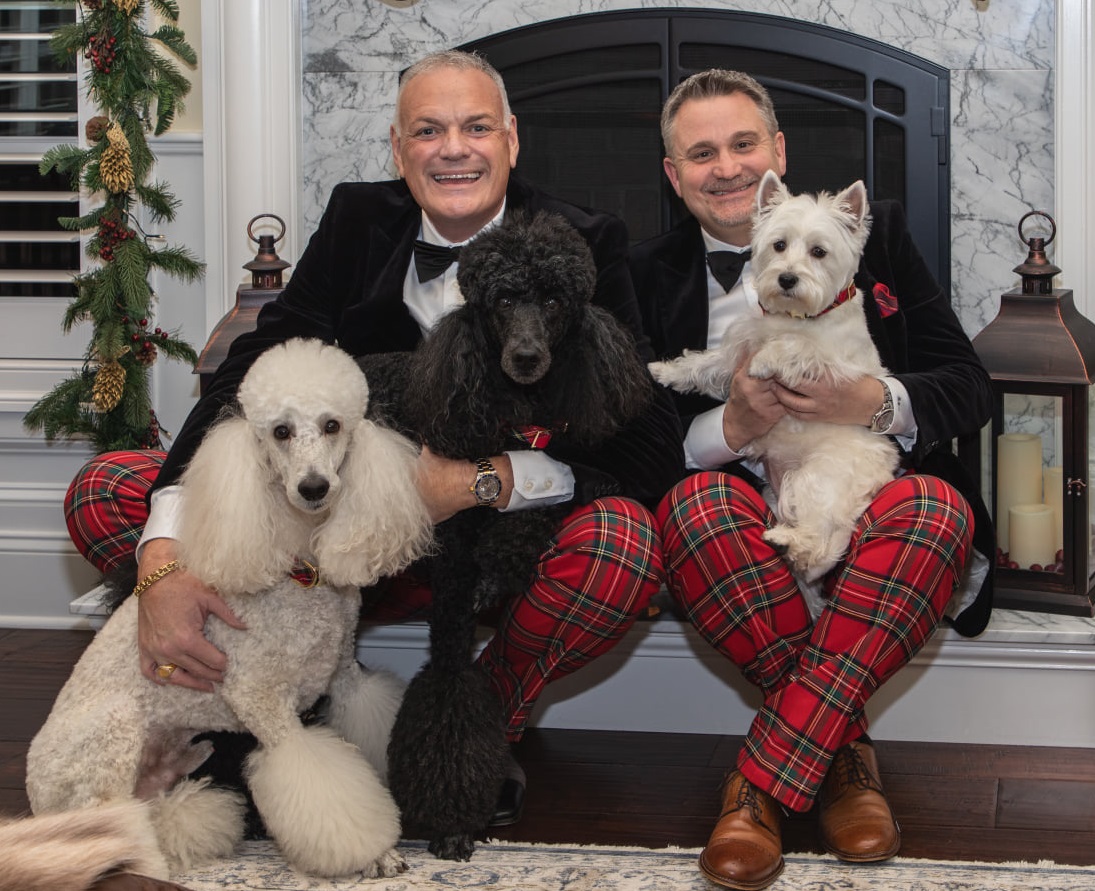

More recently, however, academic
attention has turned to focus more
closely on the intersections of human
and animal lives in the context of LGBTQ
communities. Researchers have explored
how close kinship relationships with
cats may help give meaning to the lives
of older lesbian women, helping to
combat feelings of loneliness and
isolation.
My research team recently published on
the role of animal companions in the
lives of LGBTQ people who experience
either intimate partner or family
violence. Our research found that for
LGBTQ people who experience intimate
partner violence, and whose animal
companions were also subjected to
violence, this was associated with lower
levels of social support and higher
levels of psychological distress as
compared to people whose animal
companions were not subjected to
violence.
In terms of our research on family
violence, we found that relationships
with animals appeared to play a
protective role, potentially buffering
violence perpetuated by family members.
In our analysis of the qualitative data
collected as part of the survey, we
found that animal companions were seen
as offering unconditional positive
regard in the face of violence
perpetrated by intimate partners or
family members.
Dog Rescue and the LGBTQ Community
Queer Planet: Sexual Diversity in the Animal Kingdom
Smart Gay Life: Best Pets for LGBTQ Pet
Owners
Same-Sex Penguin Couples
Pets Provide Support to LGBTQ Seniors
Popular Gay Slang Inspired by the Animal
Kingdom
Companies That Are Dog-Friendly and
LGBTQ-Friendly
Seriously Gay Animals
Research: Influence of Companion Animals
on Quality of Life of Gay and Bisexual
Men
Can Dogs be Queer?
Meet Michael Stücke: Shepherd of World's First Flock of
Gay Sheep
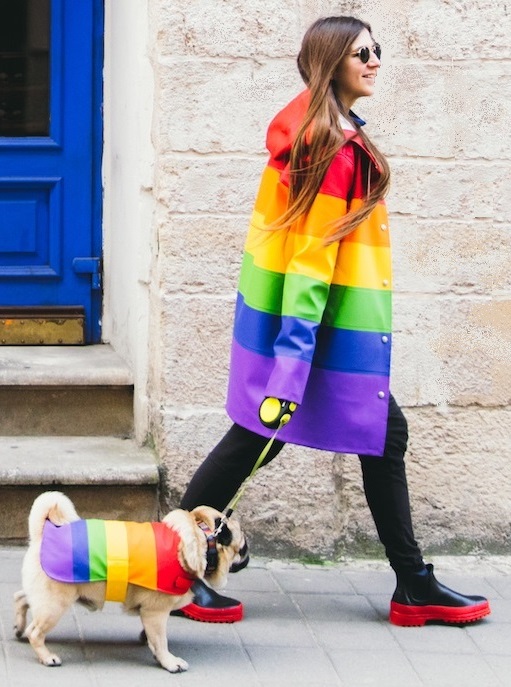
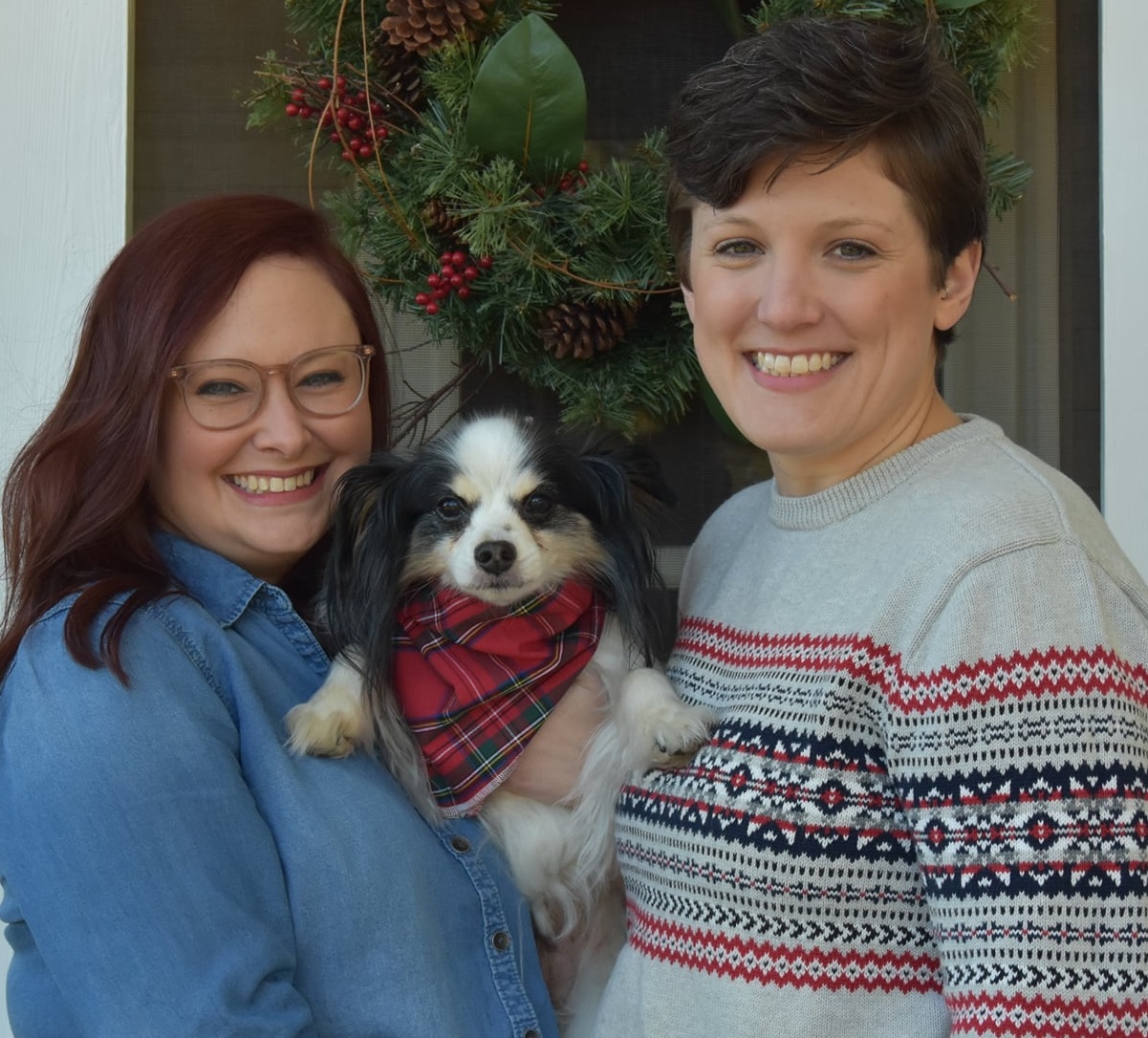

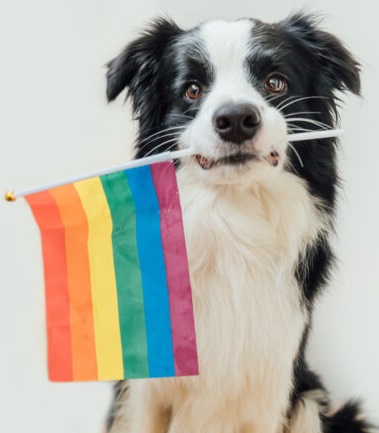
Participants made comments such as: "My
cat at my parents’ house was always a
good friend through hard times and the
emotional abuse I received."
Importantly, and reminiscent of early
lesbian feminist research, our
participants also raised concerns about
the rights of animal companions to
protection and safety, as noted by
another of our participants: "I had a
dog at the time and she stayed at my
home whilst I went between my own home
and the home of my abusive partner. I
would not take my dog to her home as I
would not have put my dog at risk of
abuse. My dog was a great source of
comfort to me. I did sometimes
deliberately deflect my partners anger
towards her own animals or her children
onto myself (by deliberately goading
her) in order to protect them."
Returning to the early lesbian feminist
work mentioned above, it is perhaps
timely, given the erosion in certain
countries of the rights of LGBTQ people,
and the fierce opposition that many
LGBTQ people face in their daily lives,
that we return to focus on the
intersections of human and animals
lives. Perhaps like the proverbial
canary in a coalmine, the rise of
research on LGBTQ people’s relationships
with animal companions tells us
something about the increasing need that
many LGBTQ people experience to extend
their kinship circles beyond the human.
Different to the canary, however,
hopefully animals are valued as sentient
beings in their own rights, rather than
simply as portents of further challenges
that may lie ahead for LGBTQ people.
[Source: Damien W. Riggs, Associate
Professor in Social Work, Flinders
University, Australia]



Elliot Page to Voice New Documentary About Gay Animals
Advocate Poll: Gays More Likely to Own Pets
Relationship
Between Pets and Their LGBTQ Owners
Queer Women Own the Most Cats
Australian Firefighters
and Their Pets
Lesbian Cats: Unlikely Love Story
Adorable Intersex Kitten,
Born With No Sex Organs, Looking for a
Home
Gay Couple and Their Dog
Can Cats be Gay, Lesbian or Bisexual?
Pet Industry Statistics for 2021
I’m Not a Cat Lesbian But
I Fell in Love With One
Stuff Lesbians Love: Cats
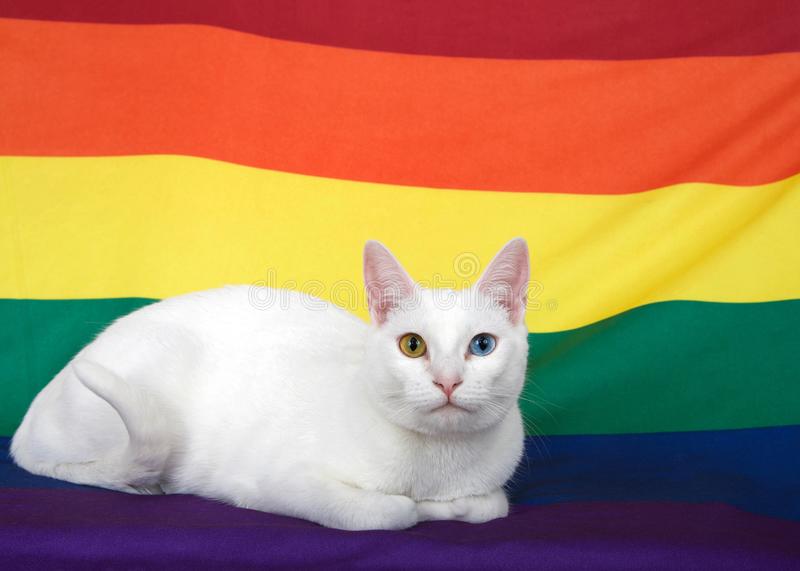
Lesbians and Cats
In what
ways are lesbian like cats? The fact
that queer women love cats is one of my
favorite stereotypes about lesbians. I
currently own five (one had kittens) and
it’s been the most successful pick-up
line I’ve ever used. “Why don’t you come
home with me and meet my five week old
kittens” is like the lesbian version of
a man offering to bring a straight girl
back home for a drink. It works every
time. And it’s easy to see why. We have
so much in common with cats! They’re
totally our spirit animals, and here's
why:

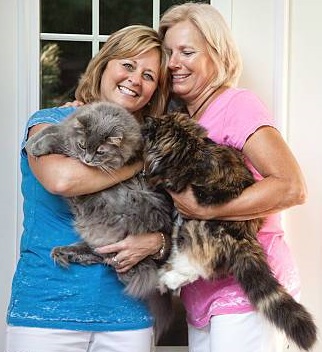

Queer Women Own the Most Cats
Gay Couple and Their Dog
Pet Industry Statistics for 2021
Adorable Intersex Kitten,
Born With No Sex Organs, Looking for a
Home
Stuff Lesbians Love: Cats
Dog Rescue and the LGBTQ Community
Fairy Dog
Elliot Page to Voice New Documentary About Gay Animals
Same-Sex Flamingo Couple at San Diego Zoo Safari Park
Hatch Chick
Thankful for Your Pets
Lesbian and Sapphic Celebrity Cat Ladies
Cats Are
Nonchalant - The cat glare is scarily
similar to the too-cool-for-you glances
you get from girls in gay clubs. Truth
is, we’re both just trying to look
uninterested while totally checking out
what’s going on in our peripheral
vision. Nothing gets past us. Straight
folks need sunglasses to hide what
they’re looking at, but both cats and
queer ladies have the sideways-stare
down. Like a ninja.
Once They Love You, They Love You
Forever - Cats totally have the
urge-to-merge. Forever. It may take a
while at first, but win a cat's trust
and they’re yours forever.
They Have Sharp Claws, And Will Use Them
If Necessary - Ours are metaphorical of
course, but piss off a lesbian and she
won't pussyfoot around you. Especially
if you hurt her bestie, she'll go
full-on bulldog on you.
They’re Androgynous - I mean who can
even tell what gender a cat is anyway.
And you don’t see anyone trying to be
like Hey, cat, what's your gender?
do you? Because you don’t fuck with a
feline.
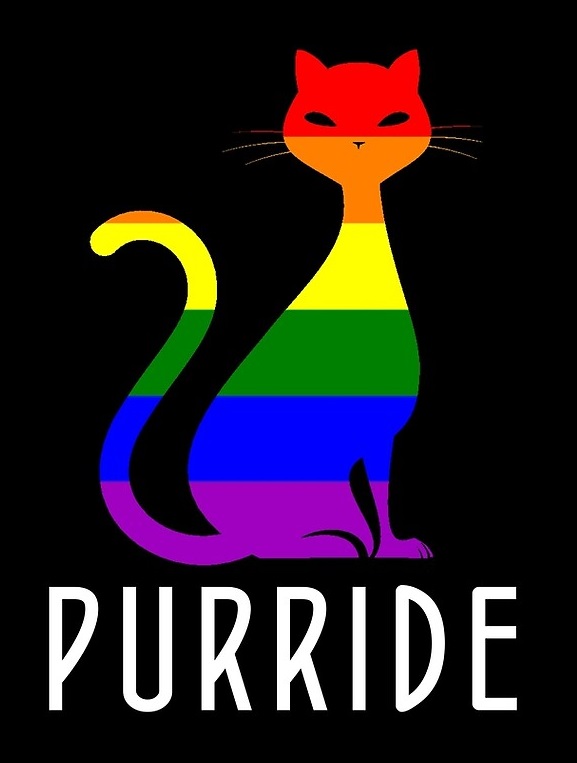

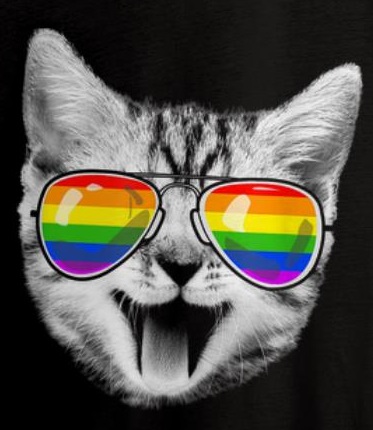
They Love Playing with Toys - A girl’s
best friend is her … smartphone. I mean
gay girls love gadgets, right? Stop
looking at me like that. Get your mind
out of the gutter. Oh, honestly.
So it’s settled. Cats are the definitely
every lesbian/bi girls BFF. Wow, I made
it through all of that without making a
single pussy joke. Go me!
[Source: E J Rosetta, LGBTQ Columnist
and Coffee Addict, lives in Hampshire,
England with her spoiled cat, Hendricks]
Advocate Poll: Gays More Likely to Own Pets
Relationship
Between Pets and Their LGBTQ Owners
Queer Planet: Sexual Diversity in the Animal Kingdom
Queer Women Own the Most Cats
Gay Couple and Their Dog
I’m Not a Cat Lesbian But
I Fell in Love With One
Pet Industry Statistics for 2021
Dog Rescue and the LGBTQ Community
Smart Gay Life: Best Pets for LGBTQ Pet
Owners
Popular Gay Slang Inspired by the Animal
Kingdom
Lesbian Cats: Unlikely Love Story
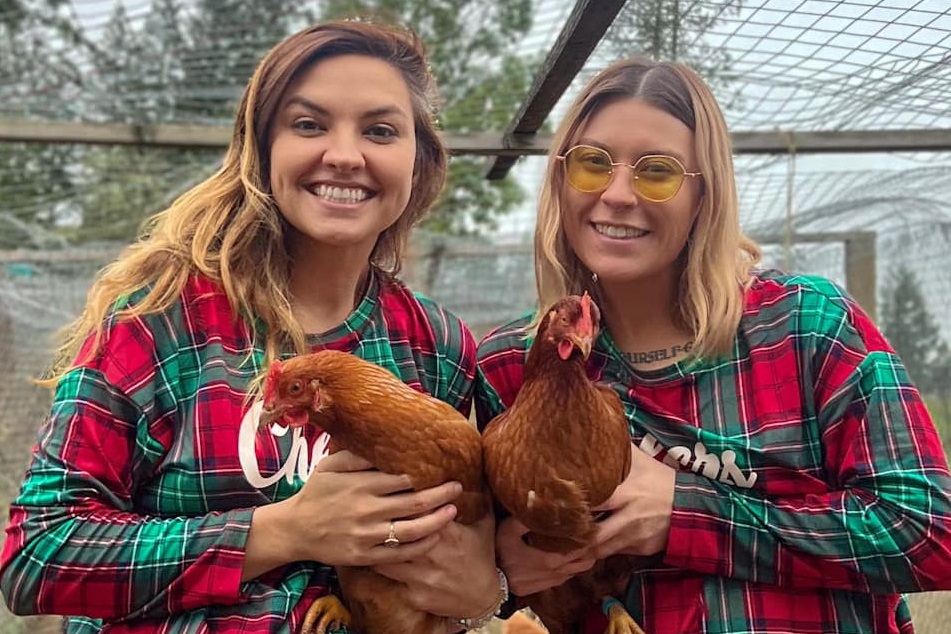
LGBTQ Community: Taking Pride in Our Pets
Pets as a Source of Support and
Stress Relief
One thing is certain about our friends with four legs and a tail—we love them,
and they love us back. LGBTQ pet parents, in particular, have a special
relationship with their four-legged companions… and it’s not just love—it’s
science. Did you know that 7 out of 10 lesbian, gay, bisexual, and
transgender adults are pet parents?
Regarding our own mental health and wellness, we can all count on one source of
support, and it’s our pets. In a survey of pet owners, four in five revealed
that their pet has positively impacted their mental health—from social
connections to self-esteem, routines, and anxiety relief. This proves true for
cats and dogs.
The
experts agree, and some have studied pet companionship unique to LGBTQ people.
One study found that pets served as a buffer to stress, a coping mechanism for
mental health, provided a sense of purpose and identity, and even helped with
overall socialization. About 75% of those studied consider their pet “a source
of support that helps them cope with LGBTQ-related stressors, such as
discrimination, rejection and microaggressions from their peers and family
members.”
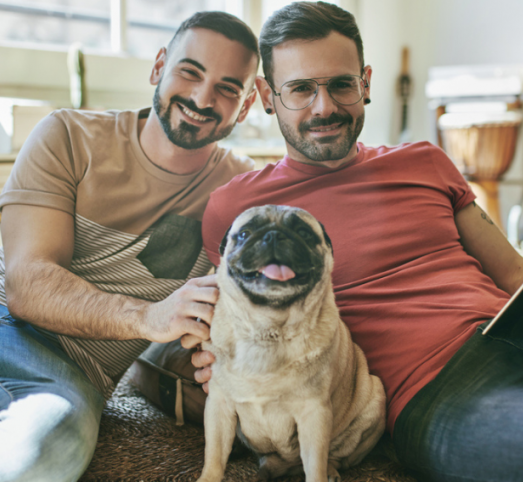
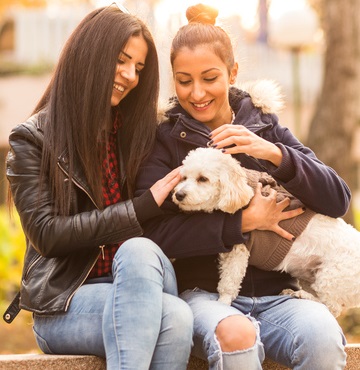
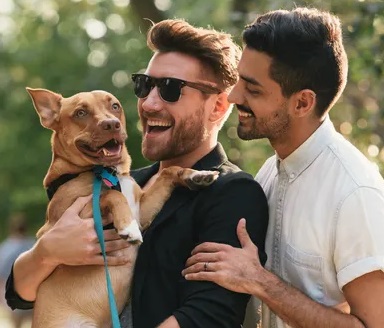
Smart Gay Life: Best Pets for LGBTQ Pet
Owners
Elliot Page to Voice New Documentary About Gay Animals
Same-Sex Penguin Couples
Two Flamingo Dads Successfully Hatch Adopted Chick Together: Congratulations to
Curtis and Arthur
Pets Provide Support to LGBTQ Seniors
Lots of Animals are Gay, Experts Find
Companies That Are Dog-Friendly and
LGBTQ-Friendly
Museum Showcases Queer Relationships in the Animal Kingdom
Meet Michael
Stücke: Shepherd of World's First Flock of Gay Sheep
It turns out that our pets’ unconditional love and companionship contribute to
our professional, personal, and academic growth, according to one study of young
adults. In this research, the link between LGBTQ adolescents’ poor social
support and their resulting mental health challenges was significantly
influenced by animal companionship.
Researchers also found that having a pet benefits LGBTQ adults over 50,
highlighting their influence on social support and even in meeting new people.
They also found that pets introduced exercise, companionship, and more active
routines into these adults’ lives as their schedules became less busy (and less
social) as they grew older.
From the classroom to retirement, our pups and kitties play a substantial role
in the lives of LGBTQ people. Similar to couples struggling to conceive, pets
are a great way to bring a new ‘baby’ home for gay and lesbian couples. There’s
a reason we have the term “furbaby,” after all. The adoption process can be
cost-prohibitive and yet another source of discrimination for same-sex
parents-to-be.


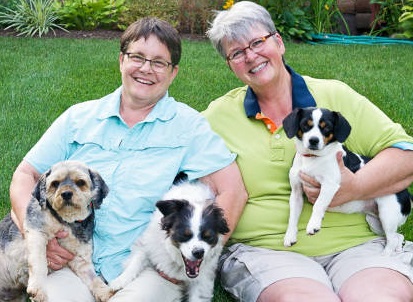
It’s not just babies, though. Queer people use the term “chosen family” to
represent their unique community circles and friend group dynamics. Chosen
families are as diverse as those in them, becoming the family we find outside
our biological one (or in place of it). From family dinners to emotional
support, chosen families play a meaningful role in LGBTQ lives, and, you guessed
it—our cats and dogs are also part of our chosen families. Though, maybe not so
much at the dinner table.
Our pets bring a smile to our faces, make us laugh even when they’re naughty,
keep us warm on cold nights, and encourage us to take long walks in the
sunshine. For the LGBTQ community, this source of love, companionship,
belonging, and purpose makes our day and gives some a reason to see the next
one. Pet parenting isn’t easy, and neither is being queer or trans. In our
minds and in our hearts, it’s all worth it to take pride in pet parenting.
[Source: Dylan M. Austin, Figo, Oct 2022]
LGBTQ-Owned Pet
Shops
Why the LGBTQ Community Takes Pride in Our Pets
Advocate Poll: Gays More Likely to Own Pets
Relationship
Between Pets and Their LGBTQ Owners
Queer Women Own the Most Cats
Gay Couple and Their Dog
Same-Sex Flamingo Couple at San Diego Zoo Safari Park Hatch Chick
Lesbian and Sapphic Celebrity Cat Ladies
Australian Firefighters
and Their Pets
Pet Industry Statistics for 2021
Stuff Lesbians Love: Cats
Dog Rescue and the LGBTQ Community
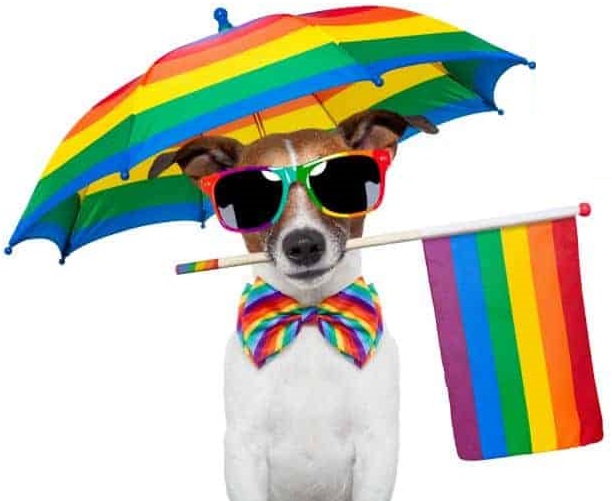
For LGBTQ
Youth, Pets Can Be a Source of Wellbeing
In a recent Virginia Commonwealth
University study of 117 sexual and
gender minority youth living in the US,
researchers found nearly 75% of
participants said they consider their
pet to be a source of support that helps
them cope with LGBTQ-related stressors.
And nearly 90% also talked about the
stress related to owning a pet.
For sexual and gender minority emerging
adults, living with pets can be an
important influence on identity
development and related well-being by
facilitating feelings of belonging,
positive self-regard and purpose, by
promoting social interactions, and by
providing emotional support and comfort
to cope with stress.
At the same time, however, pets can also
be a source of psychological stress and
caregiving burden for this population,
which includes lesbian, gay, bisexual,
transgender, queer and other sexual and
gender identities.
The
qualitative study investigated the
benefits and risks associated with
living with companion animals by
interviewing 117 sexual and gender
minority youth living in the US.
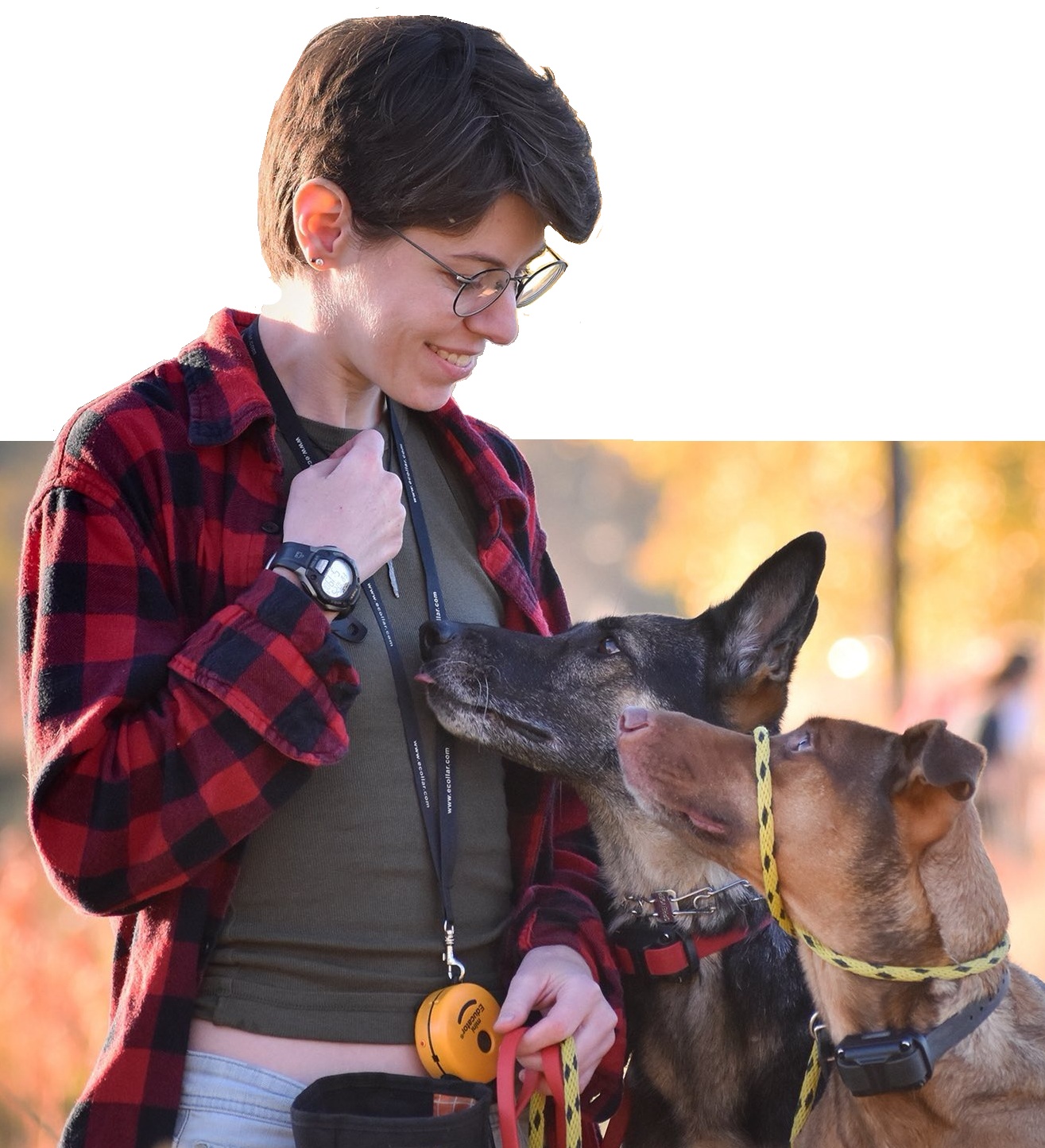
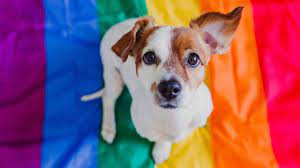
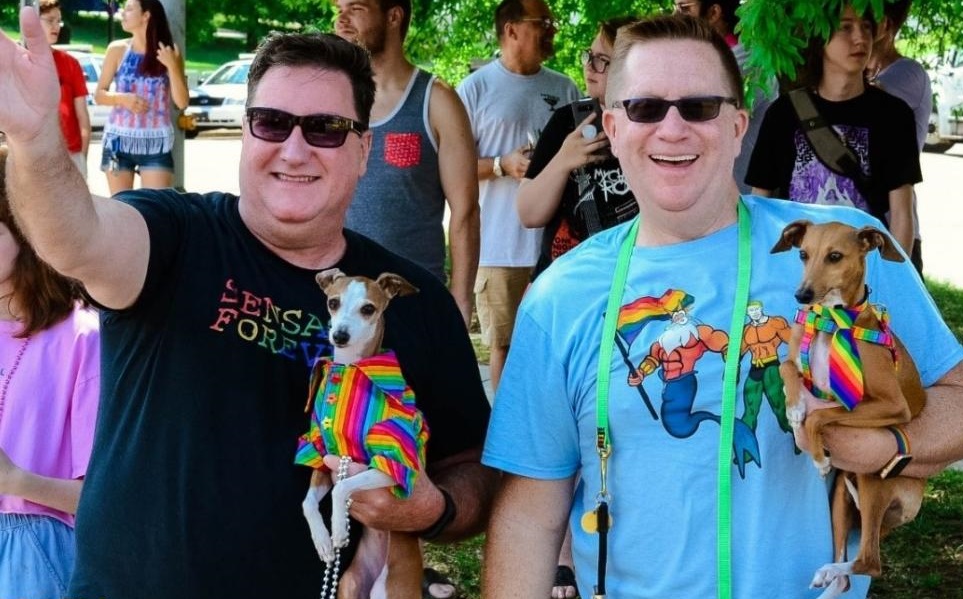
Advocate Poll: Gays More Likely to Own Pets
Queer Planet: Sexual Diversity in the
Animal Kingdom
Relationship
Between Pets and Their LGBTQ Owners
Queer Women Own the Most Cats
Gay Couple and Their Dog
Pet Industry Statistics for 2021
Sexy Australian
Firefighters and Their Pets
Stuff Lesbians Love: Cats
Dog Rescue and the LGBTQ Community
Can Cats be Gay, Lesbian or Bisexual?
Lots of Animals are Gay, Experts Find
A number of themes emerged from the
interviews. These included benefits such
as: pets as a buffer to stress, pets as
social capital, pets as a coping
mechanism for mental health, and pets as
identity and purpose. Risks, meanwhile,
included caregiver burden, pets as
barriers to relationships, and
animal-related psychological stress.
“Sexual and gender minority emerging
adults are at risk for experiencing
additional stressors (such as
victimization, rejection,
discrimination) due to oppressive
cis-heteronormative societal attitudes
and structures,” Matijczak said. “This
additional stress may lead to mental
health symptoms. Pet ownership and
interactions with pets provide benefits
that may help people cope with stress
and improve psychosocial health (fewer
mental health symptoms, higher
self-esteem). On the other hand, the
results of our studies (and other
qualitative studies) also suggest that
pet ownership may contribute to stress.”
To address health disparities, she
added, it is important to consider how
pet ownership might provide unique
benefits and risks among sexual and
gender minority emerging adults.
All of the study’s participants
described receiving some benefit from
the relationship with their pet or pets.
Nearly 75% said they consider their pet
to be a source of support that helps
them cope with LGBTQ-related stressors,
such as discrimination, rejection and
microaggressions from their peers and
family members.
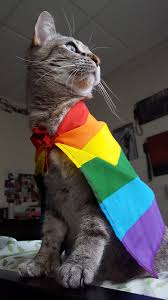

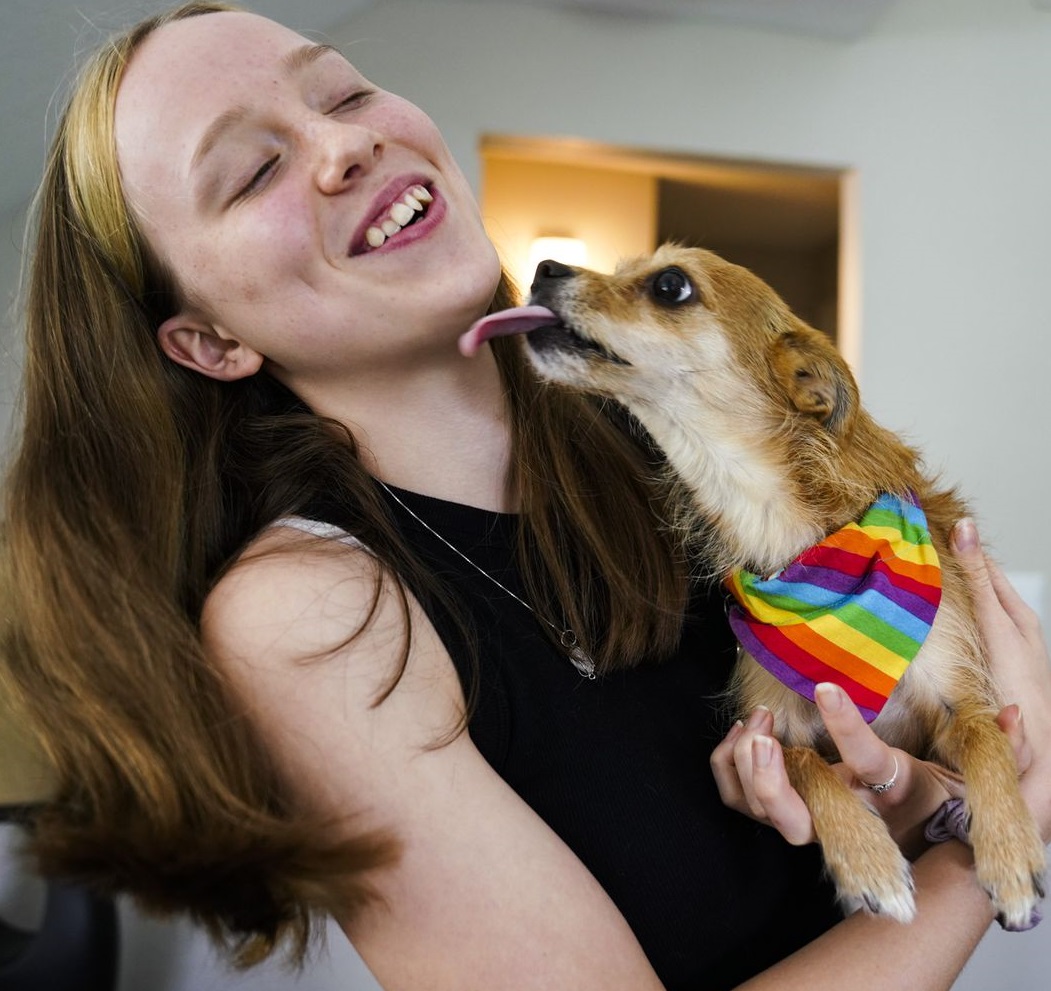
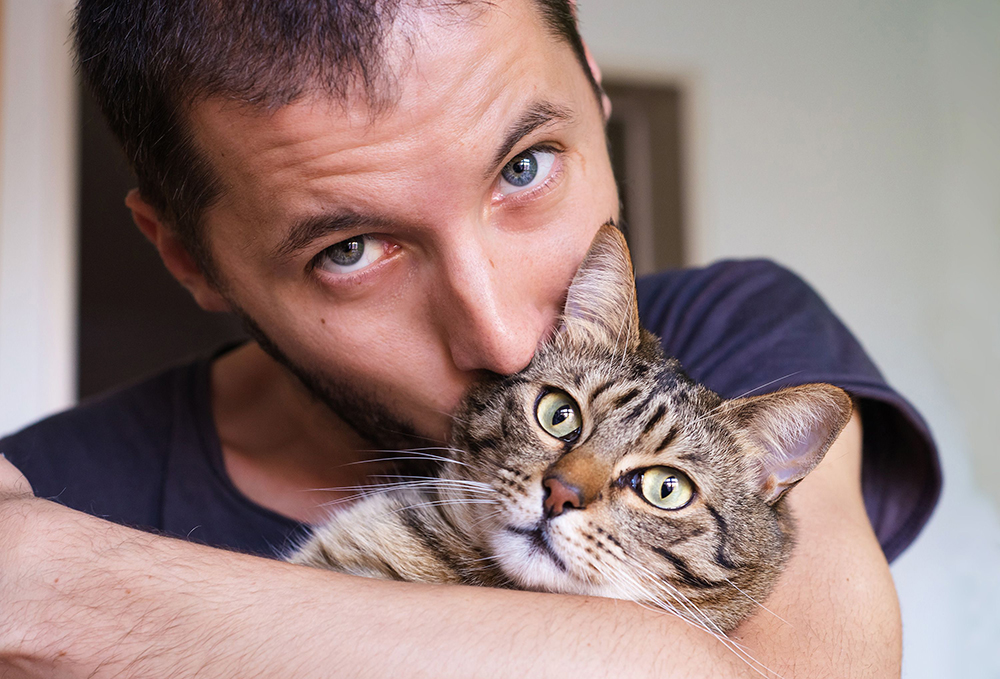
Smart Gay Life: Best Pets for LGBTQ Pet
Owners
Same-Sex Penguin Couples
Same-Sex Flamingo Couple at San Diego Zoo Safari Park Hatch Chick
Dolphins Have Lots of
Lesbian Sex Due to Evolved Clitorises
Pets Provide Support to LGBTQ Seniors
Two Male Penguins Welcome Hatchling as
New York Zoo's 1st Same-Sex Foster
Parents
Companies That Are Dog-Friendly and
LGBTQ-Friendly
First Humpback
Whales Observed Having Sex are Both Male
Museum Showcases Queer Relationships in the Animal Kingdom
Elliot Page to Voice New Documentary About Gay Animals
Two Flamingo Dads Successfully Hatch Adopted Chick Together: Congratulations to
Curtis and Arthur
Nearly 90% of participants also talked
about the stress related to owning a
pet.
“While the benefits of pet ownership and
the human-animal bond are frequently
discussed in research and popular news
media, it is also important to consider
the stressors associated with pet
ownership,” Murphy said.


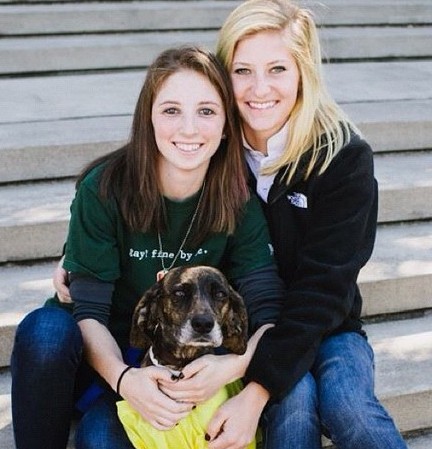
“The study’s findings that pets can
provide an important form of social
support and comfort during times of
stress, but also are a cause of stress
due to financial and housing concerns
and worry about the pets’ health and
well-being, could provide valuable
information for those working with
sexual and gender minority emerging
adults,” Tomlinson said.
“Clinicians, community organizations and
researchers working with this population
should consider pets and the role they
play in emerging adults’ lives,”
Tomlinson said. “For example, community
supports (such as pet-friendly rental
housing, low-cost veterinary care and
services) may help to mitigate some of
the stressors reported.”
[Source: Brian McNeill, Virginia
Commonwealth University, July 2021]
Advocate Poll: Gays More Likely to Own Pets
Relationship
Between Pets and Their LGBTQ Owners
Queer Women Own the Most Cats
Gay Couple and Their Dog
Lesbian Cats: Unlikely Love Story
Pet Industry Statistics for 2021
Sexy Australian
Firefighters and Their Pets
Stuff Lesbians Love: Cats
Dog Rescue and the LGBTQ Community
Fairy Dog
Can Dogs and Cats Be Gay?
If you've
ever had a pet, you may have wondered if
your dog or cat can be gay. You may have
seen your dog mount another pup at the
dog park. Or watched as your cat seemed
only to groom her female litter mates
while ignoring her brothers. Since house
pets don't often couple up with a
significant other, these questions may
just be speculation. However, when you
look at the animal kingdom as a whole,
especially those critters who are free
to roam around without the confines of a
human home, the idea of dogs and cats
exhibiting homosexual behavior is
something that deserves closer
attention.
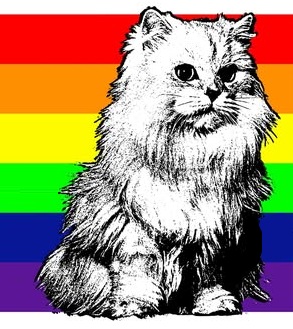
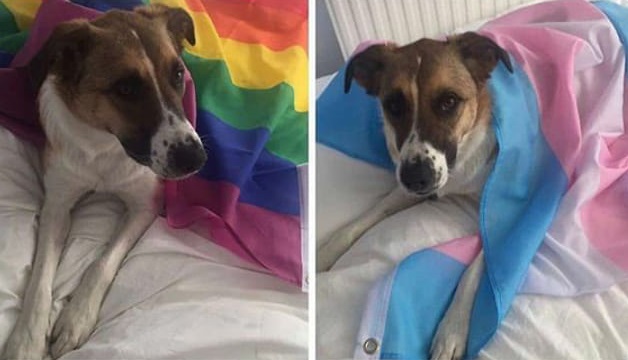
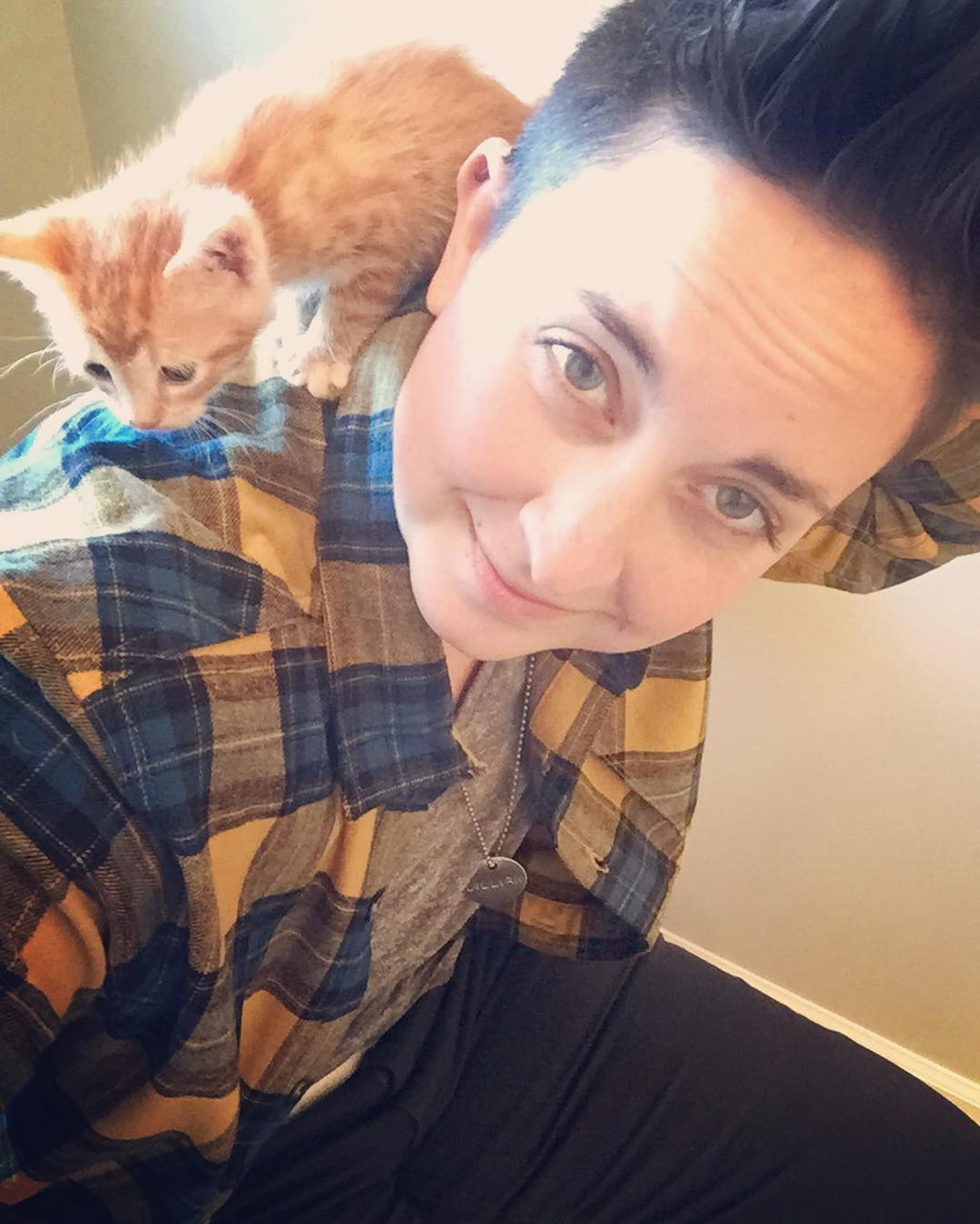
Studying Same-Sex Behavior in Animals
Same-sex
behavior has long been noted in animals
of many different species. In 2014, the
BBC reported on a pair of male Humboldt
penguins who raise orphaned eggs
together at a zoo in Kent, England. You
may have even noticed your own pet
cuddling up to a same-sex pal. But
before we can determine whether pets can
be gay, we first need to set the
baseline for what is considered "gay" in
the animal kingdom.
Gay human
beings are defined as being sexually
attracted to people of the same sex.
However, human sexual orientation is
famously varied and fluid, and
scientists who study the sexual activity
of animals urge us not to compare our
behavior to our pets' for a variety of
reasons.
Seriously Gay Animals
‘Queer Planet’ TV Series Features Lion Bromances, Pansexual Monkeys and More
Dolphins Have Functional
Clitorises They Use in Lesbian Sex
Penguin Chick Hatched by
Same-Sex Pair at Rosamond Gifford Zoo
Gay Swan Couple Built a Nest Together: Zoo Gave Them 3D-Printed Eggs to Raise
Humpback Whales Photographed Having Sex (Gay Sex) for the First
Time
Two Flamingo Dads Successfully Hatch Adopted Chick Together: Congratulations to
Curtis and Arthur
Animals That Are Biologically Trans
Lots of Animals are Gay, Experts Find
Bisexual Tortoise
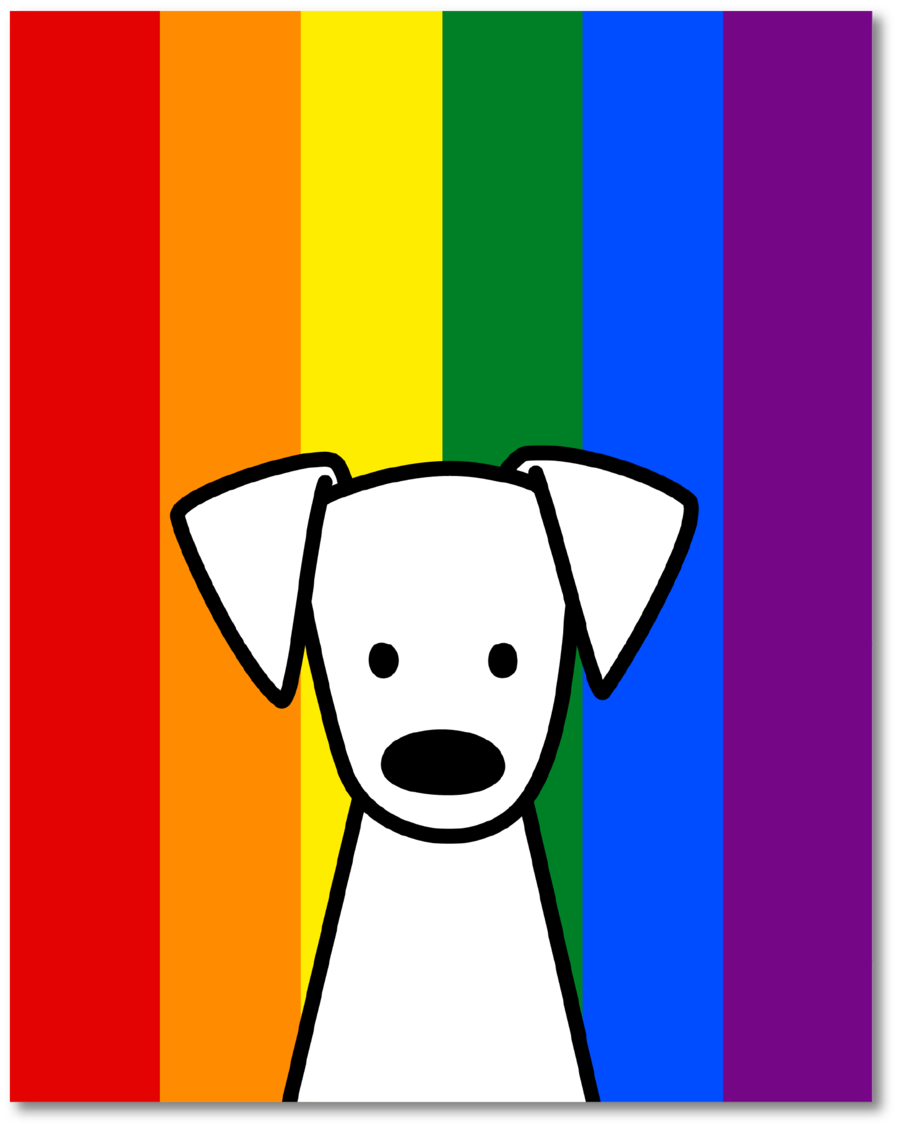 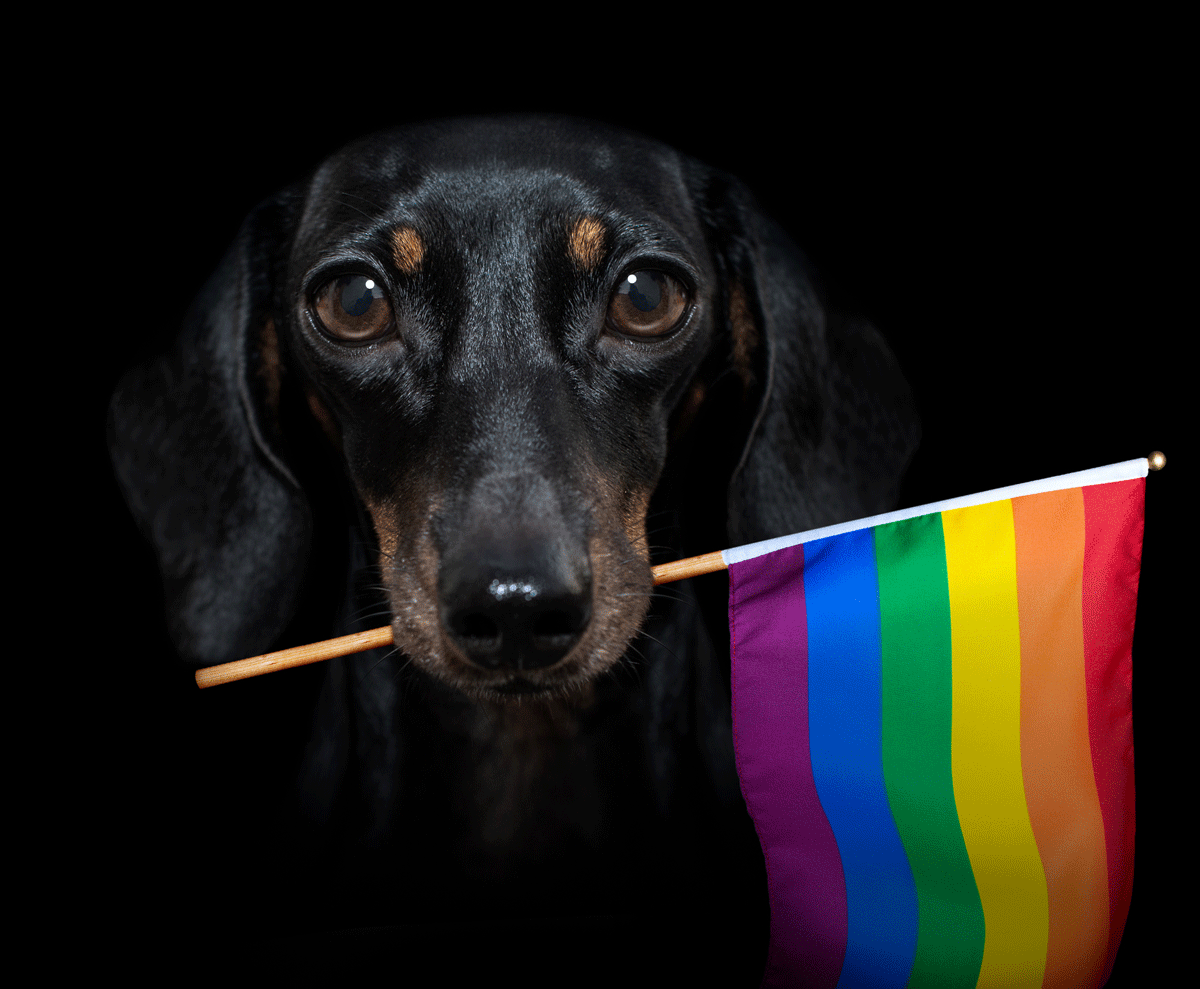

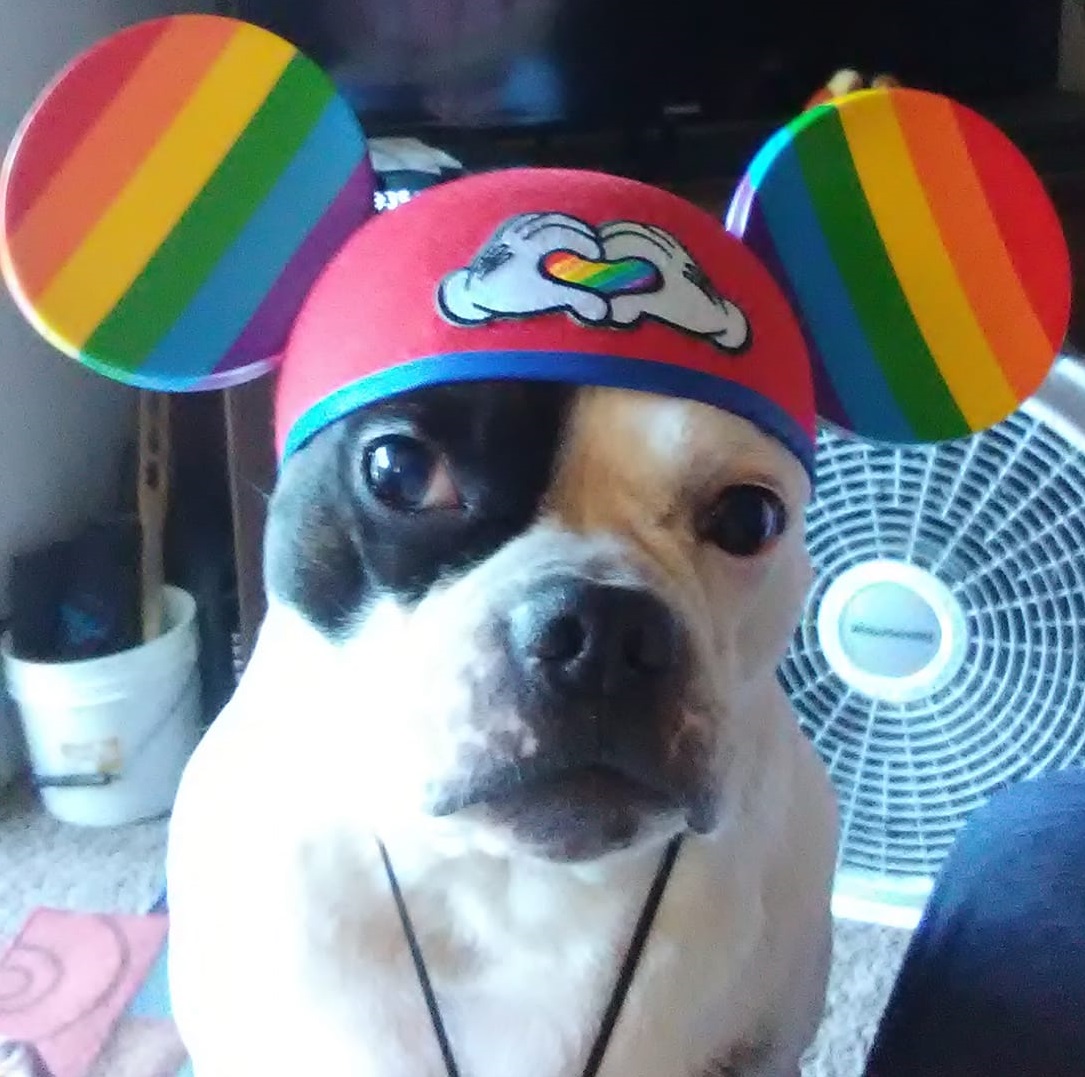
Can
Sexual Behavior Be Misinterpreted?
Can dogs
be gay? Can cats be gay? Here's another
reason why it's tough to find the answer
to these questions: for animals, what's
presumed to be a mating behavior may be
misinterpreted. For example, both male
and female dogs will mount other dogs.
While it is possible that some pets do
this because they want to engage in
sexual activities, there are many other
reasons they may be performing that
behavior. The American Society for the
Prevention of Cruelty to Animals (ASPCA)
suggests that mounting is less about sex
and more about playing, releasing stress
or showing dominance. Also, don't forget
that dogs will often mount humans and
furniture as well.
Male cats (even neutered ones) may also
mount their pet parents and other
household kitties to show who's boss.
Neutering or spaying your pet will often
help prevent mounting and other
aggressive behaviors. Cats are also
known for their grooming skills, and
will often lick and sleep cuddled up to
other cats. What may seem like sexual
behavior to humans may very well be a
part of social grooming.
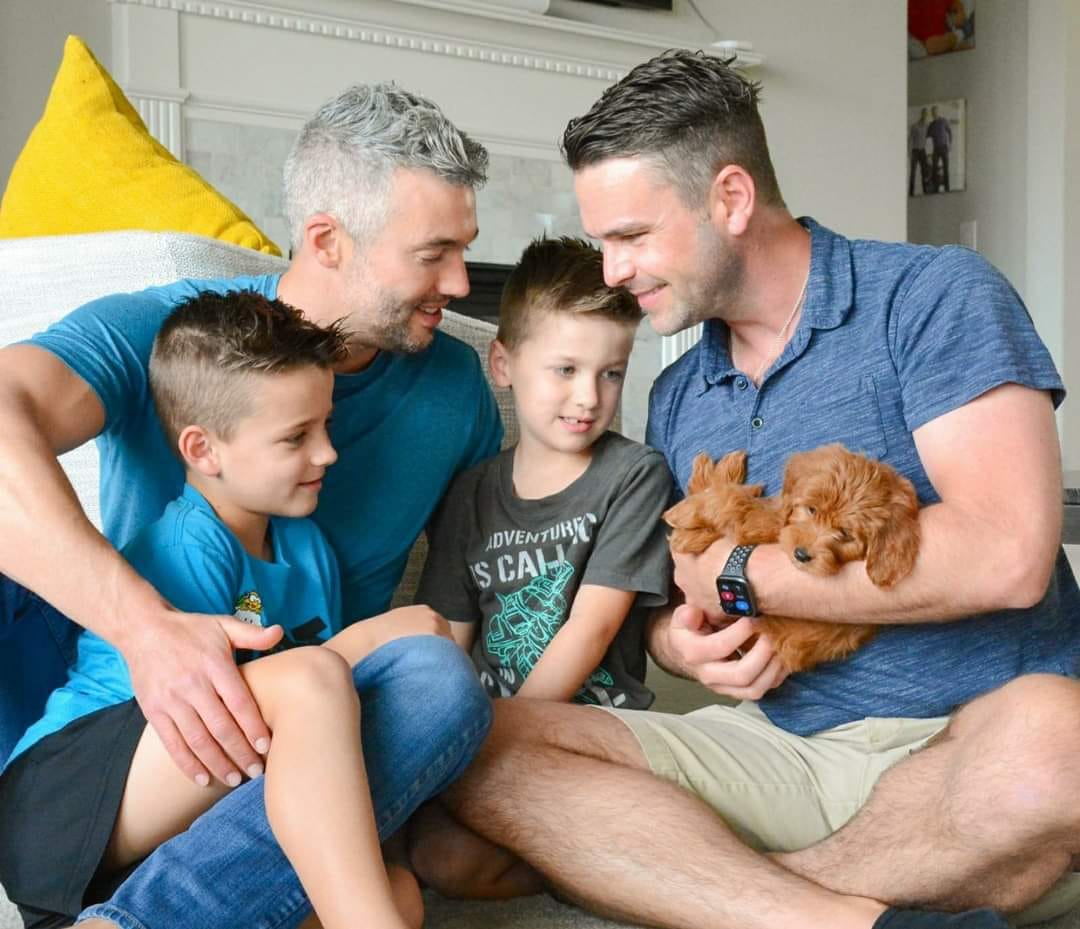
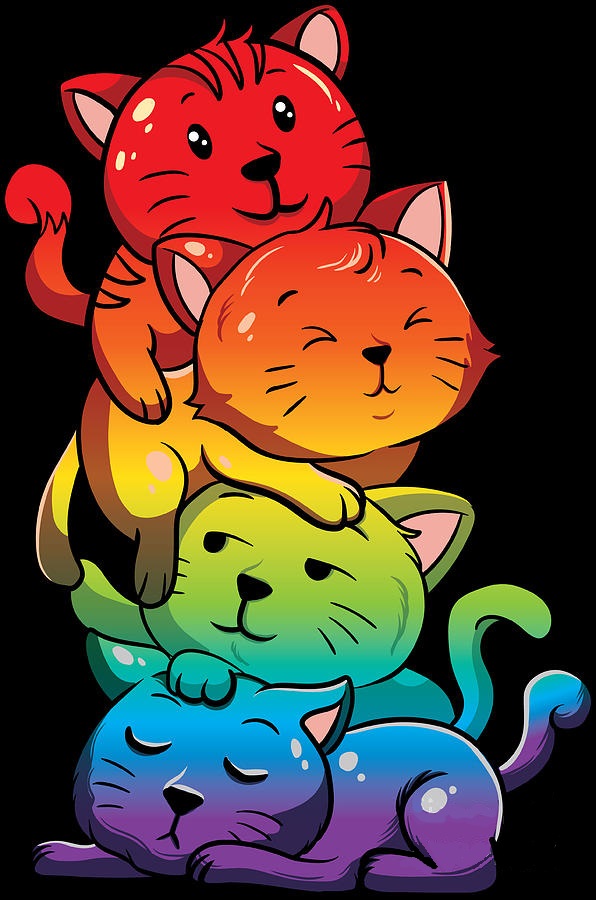
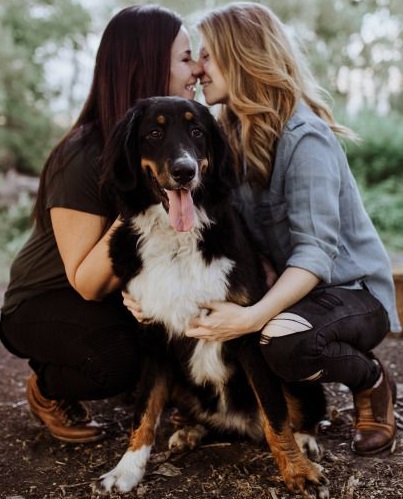
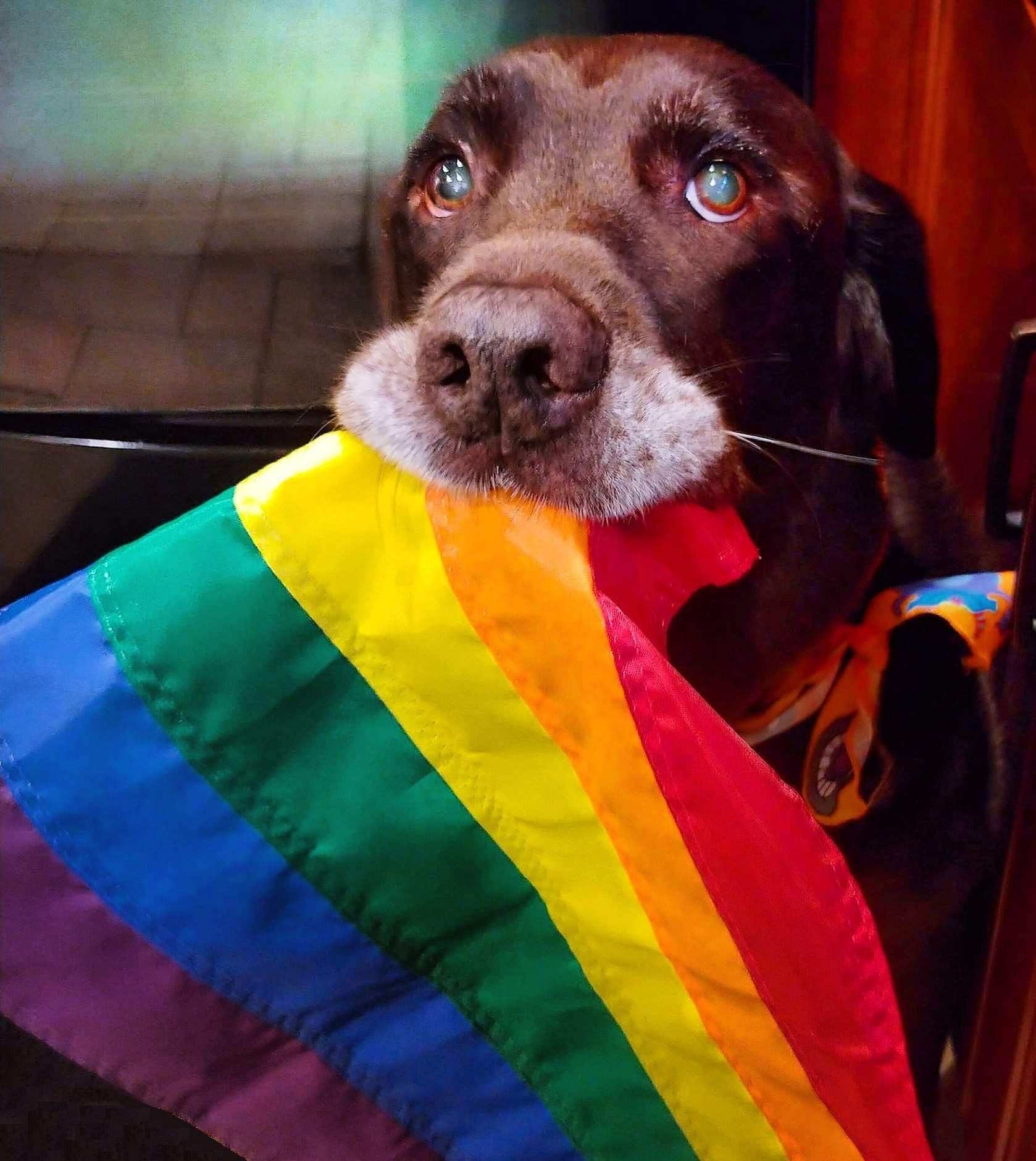
‘Queer Planet’ TV Series Features Lion Bromances, Pansexual Monkeys and More
Museum Showcases Queer Relationships in the Animal Kingdom
David Attenborough
Narrates Same-Sex Mating Ritual in Epic
Frozen Planet Clip
Elliot Page to Voice New Documentary About Gay Animals
Lesbian Pugs
Neutered Cats and Humping Activity
Popular Gay Slang Inspired by the Animal
Kingdom
Two Male Penguins Welcome Hatchling as
New York Zoo's 1st Same-Sex Foster
Parents
Rainbow Fish Is Born
Female and Becomes Male As It Ages
The Jury Is Still Out
While
there's been much speculation, there's
no scientific evidence of various
animals, especially house pets, being
gay or not.
"Whether there's any kind of same-sex
sexual preference going on, that's left
entirely to the imagination in the sense
that the data just doesn't exist to
demonstrate one way or the other," said
Paul Vasey from the University of
Lethbridge to the Washington Post. He
continues to say that being exclusively
gay is "exceptionally rare" in the
animal kingdom.
So, if you're curious if your dog or cat
is gay, know that there is currently no
evidence to support this notion at least
in terms that humans are used to
defining homosexuality.
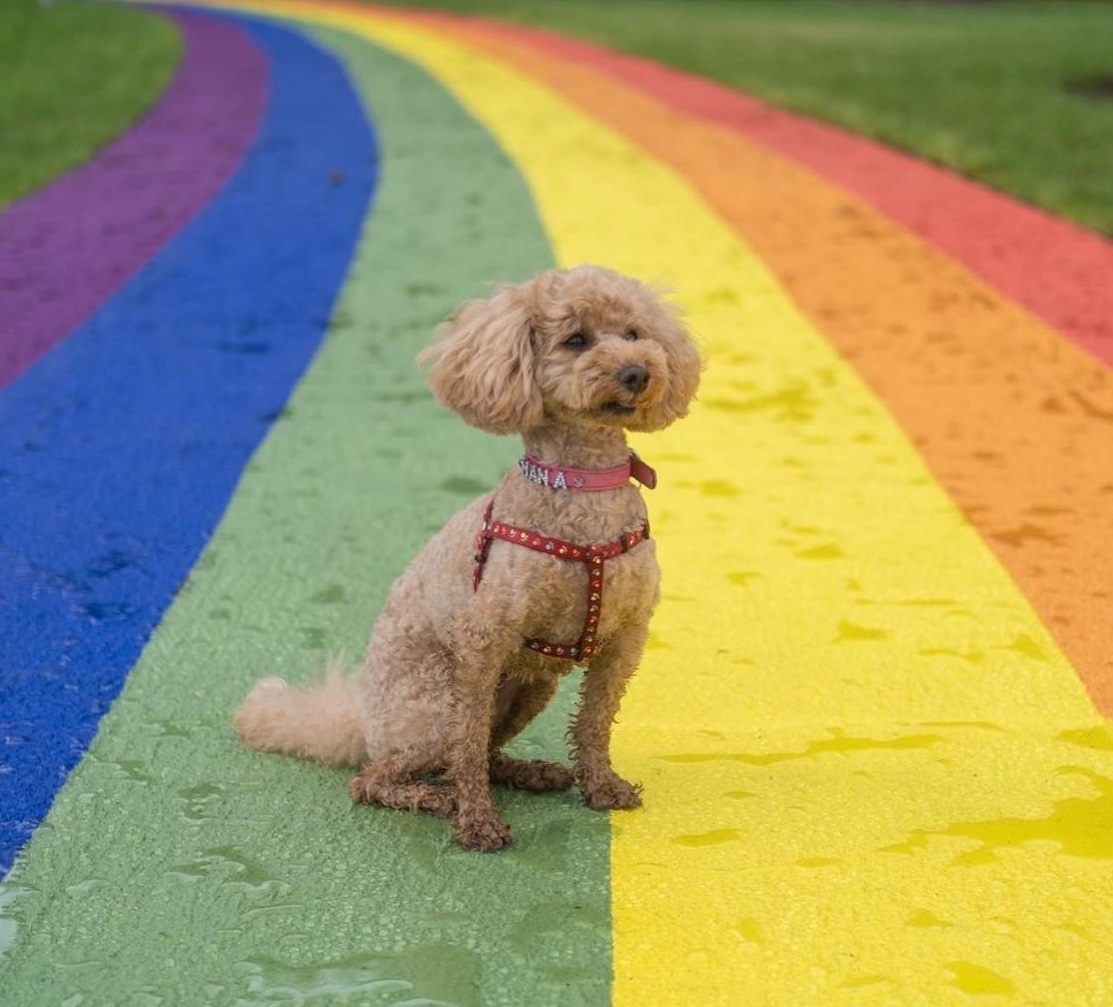


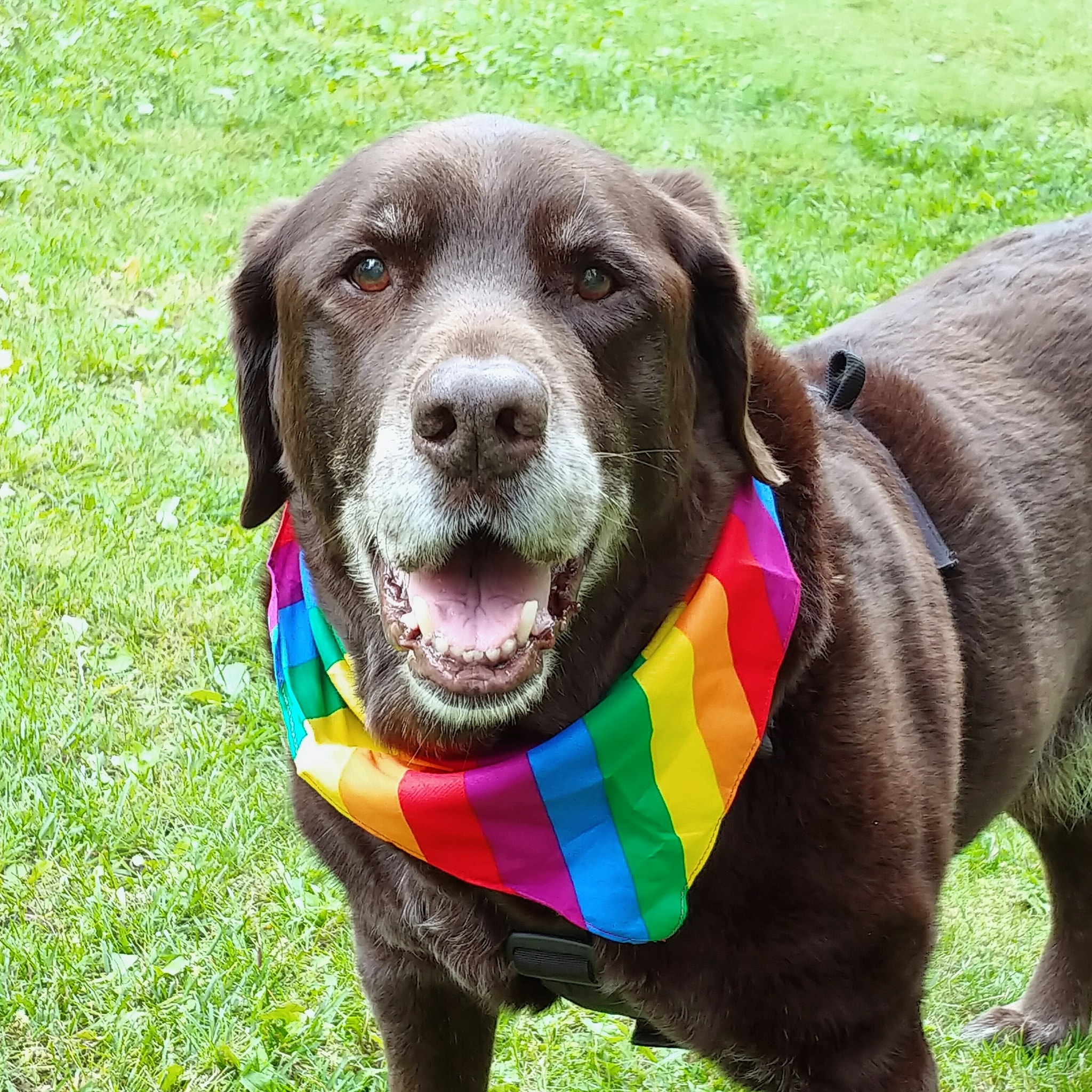
Measuring Puppy Love
Scientists often study two things when
trying to determine whether animals can
be gay: exclusivity and longevity.
Exclusivity considers whether these
animals are participating in sexual
relations only with members of the same
sex. A study in the Frontiers in
Neuroendocrinology journal found that
about 8 percent of rams appear to mate
exclusively with other males, but
domesticated sheep seem to be the only
non-human mammal with deliberate
same-sex mating behaviors. Other
animals, such as Japanese macaques,
bottlenose dolphins and bonobos (one of
our closest primate relatives), mate and
cuddle with partners of both genders,
notes the BBC — exhibiting more fluid
behavior that is closer to what we would
call bisexuality.
Next, scientists consider longevity when
studying same-sex behavior in animals.
Female albatrosses, for example, often
form lifelong partnerships with other
females. But dogs and cats don't tend to
engage in any sexual behaviors for long
periods of time. Unspayed cats will go
into heat several times a year and may
attempt to be mounted, rubbed, or licked
by another cat, regardless of sex.
Because cats and dogs also do not have
long-term mates like humans, longevity
is often quite difficult to measure.
[Source: Erin Ollila, Hill's Pet, June
2018]

Can Dogs be Queer?
‘Queer Planet’ TV Series Features Lion Bromances, Pansexual Monkeys and More
Lots of Animals are Gay, Experts Find
Gay Swan Couple Built a Nest Together: Zoo Gave Them 3D-Printed Eggs to Raise
Elliot Page to Voice New Documentary About Gay Animals
Is My Pet Gay?
Penguin Chick Hatched by
Same-Sex Pair at Rosamond Gifford Zoo
Lesbian Albatrosses of
Hawaii
Adorable Intersex Kitten,
Born With No Sex Organs, Looking for a
Home
Same-Sex Penguin Couples
Two Flamingo Dads Successfully Hatch Adopted Chick Together: Congratulations to
Curtis and Arthur
Popular Gay Slang Inspired by the Animal
Kingdom
Fairy Dog
Same-Sex
Behavior in the Animal kingdom
From
gorillas to macaques, new primate research shows same-sex affection is
widespread...
What’s love got to do with survival? Turns out, possibly a lot... at least in
the animal kingdom. A new scientific review suggests that same-sex sexual
behavior in many primate species isn’t random, rare, or bizarre. It may have
deep evolutionary roots and serve important social functions that help groups
thrive in challenging environments.
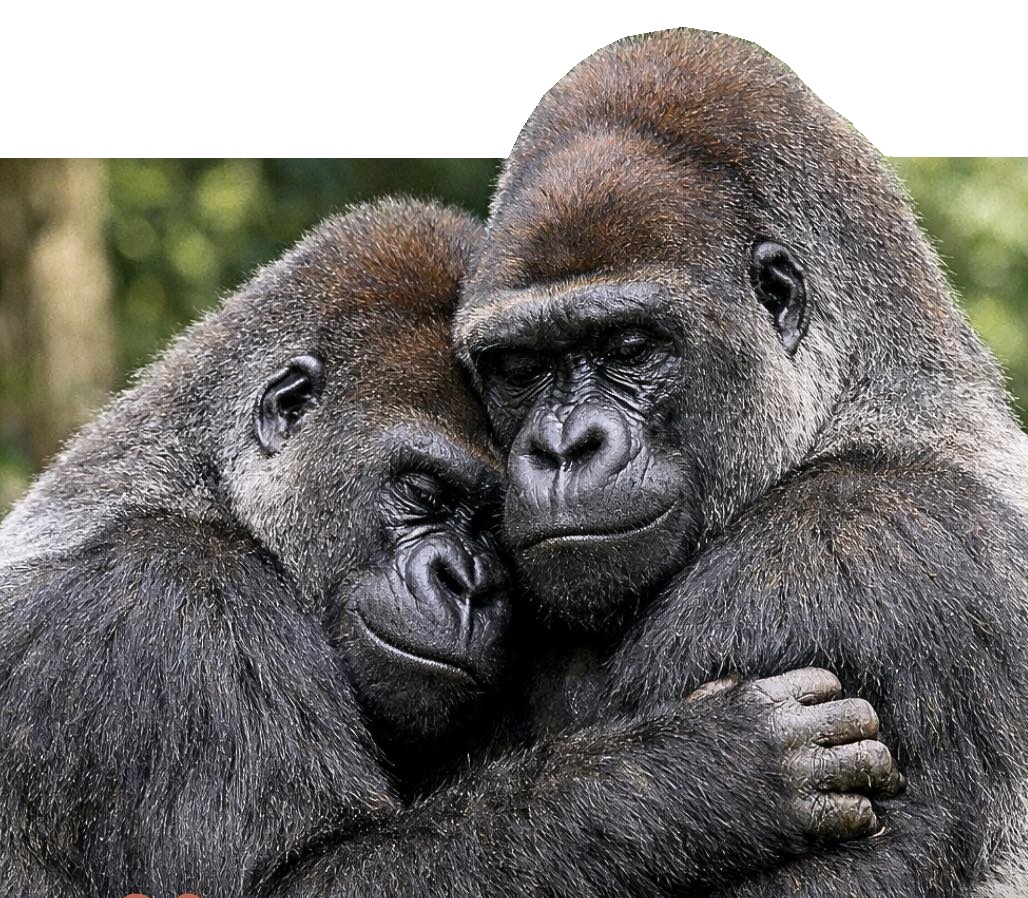
Researchers analyzed data across dozens of primate species... from bonobos and
chimpanzees to macaques... and found that same-sex interactions were more common
in groups facing harsh climates, complex social systems, or intense competition.
In these contexts, such behavior appears to help reinforce bonds, reduce
tension, and build alliances... all key to group survival.
Importantly, scientists are careful to say this doesn’t directly explain human
sexual orientation or identity. Humans are far more culturally and socially
complex than any other primate. But it does reinforce that same-sex behavior
isn’t an anomaly in nature. It’s widespread, adaptive, and part of how social
species navigate life together. This isn’t just trivia, it’s science that
broadens how we understand sexuality and social behavior across species.
[Source: BGay.Com, Feb 2026]
LGBTQ-Owned Pet
Shops
Why the LGBTQ Community Takes Pride in Our Pets
Penguin Chick Hatched by
Same-Sex Pair at Rosamond Gifford Zoo
Relationship
Between Pets and Their LGBTQ Owners
Humpback Whales Photographed Having Sex (Gay Sex) for the First
Time
Elliot Page to Voice New Documentary About Gay Animals
Lesbian Cats: Unlikely Love Story
Humpback Whales Photographed Having Sex (Gay Sex) for the First
Time
Museum Showcases Queer Relationships in
Animal Kingdom
Dolphins Have Lots of
Lesbian Sex Due to Evolved Clitorises
Animals That Are Biologically Trans
Queer Animals Are
Everywhere
Swiss Museum
Showcases Queer Relationships in Animal
Kingdom
Same-sex behavior has been observed in
about 1,500 species, including dolphins,
rams, and bonobos. An exhibition in
Bern, Switzerland is highlighting
same-sex relationships found outside the
human species.
“Many people think that homosexuality
and being queer are marginal and
perverse phenomena. They say they are
unnatural,” Christian Kropf, a biologist
at the Institute of Ecology and
Evolution at the University of Bern, he
said. “But this is nonsense!” He
explained that what is unnatural is
homophobia. “I don’t know of a single
case of homosexual individuals being
marginalized or disadvantaged in the
animal world,” said the biologist.
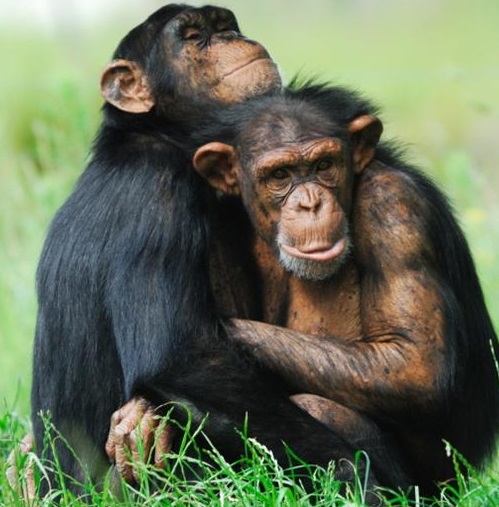
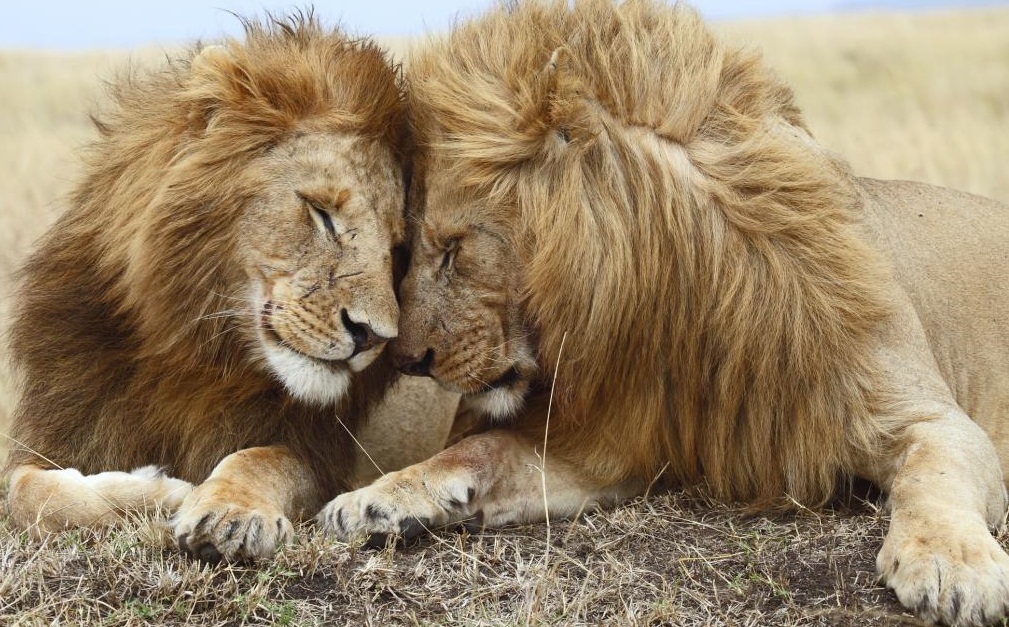

Queer Animals Are
Everywhere
Meet Michael
Stücke: Shepherd of World's First Flock of Gay Sheep
Animals That Are Biologically Trans
Same-Sex Flamingo Couple at San Diego Zoo Safari Park Hatch Chick
Advocate Poll: Gays More Likely to Own Pets
‘Queer Planet’ TV Series Features Lion Bromances,
Pansexual Monkeys and More
Lesbian Albatrosses of
Hawaii
Museum Showcases Queer Relationships in the Animal Kingdom
Most Male Macaque Monkeys are Bisexual
Kropf studies invertebrates and is
employed at Bern’s Natural History
Museum as a specialist. He is also the
curator of the exhibition titled “Queer:
Diversity Is in Our Nature.” The show
highlights the diversity of gender and
sexuality in humans and other animals,
and it features discussions on
homosexuality and its biological
aspects.
The exhibition shows plenty of examples
of same-sex behavior found in nature.
Dolphins, for example, can form same-sex
couples. Male European rams are known to
mate with other males about 6 percent of
the time, according to the museum.
“Although they have the choice, they
aren’t interested in females. Male sheep
have intense contact, lick their
genitals and have anal intercourse,”
Kropf told the outlet.
Same-sex behavior has been observed in
about 1,500 species and is probably
present in all social vertebrates. “The
reasons for homosexual relationships are
not always clear, but we do know that
they strengthen social bonds and can
contribute to group unity,” he
explained.
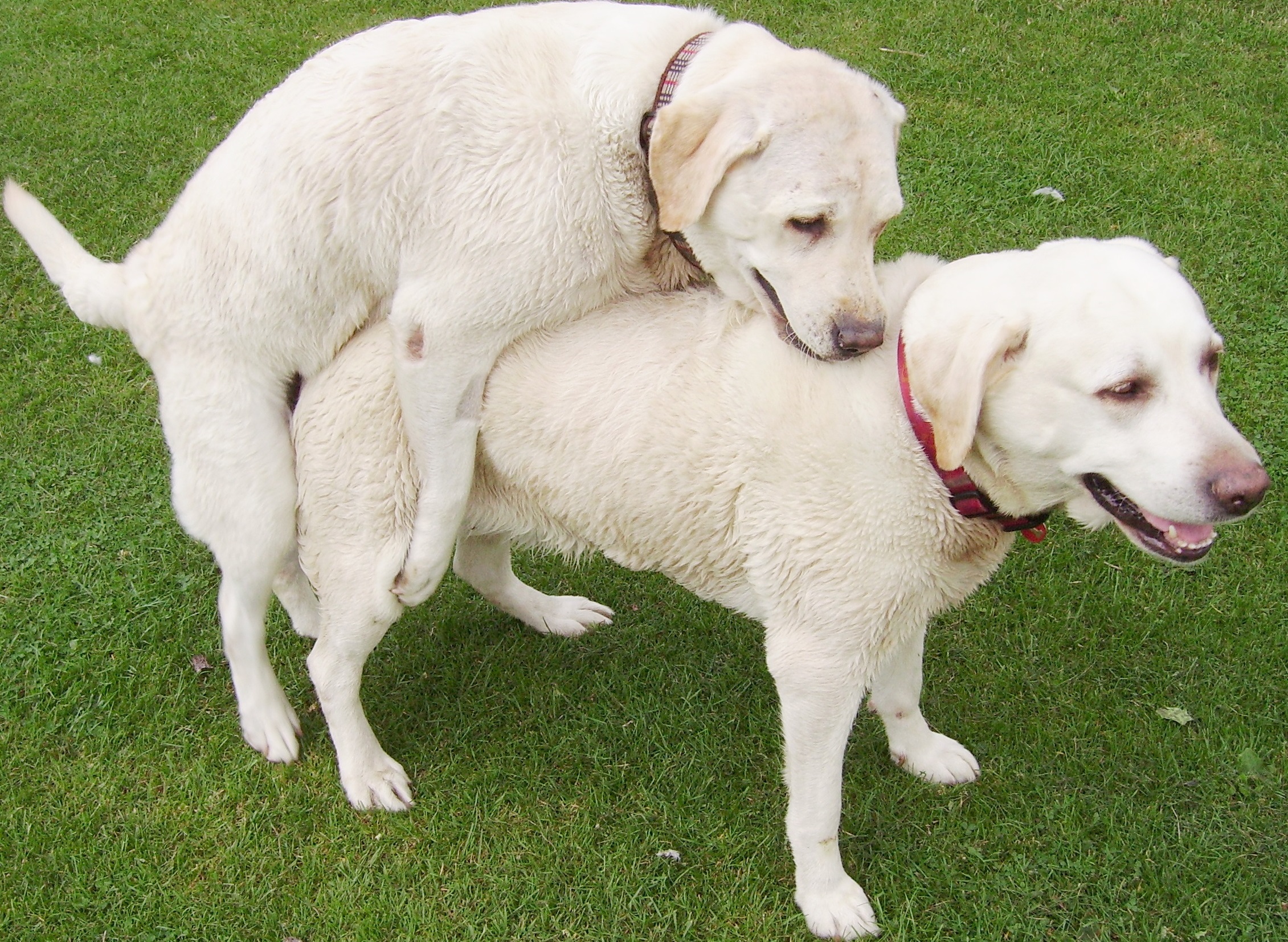
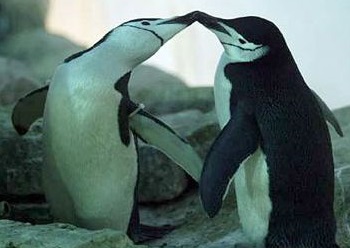
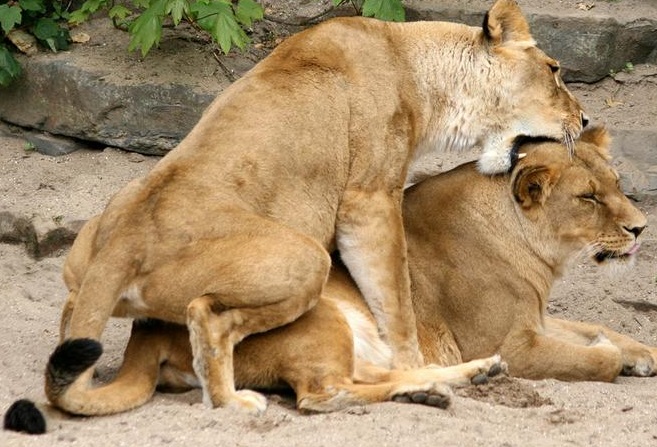
Research from Murdoch University in
Australia found that interactions among
animals of the same sex can help create
bonds and produce hierarchies, which
could aid in hunting.
“I don’t know if the exhibition
contributed to the acceptance of the new
marriage law in Switzerland,” Kopf said.
“But it certainly had an impact on my
father. He is 87 years old and has never
spoken well of homosexual people. But
since he came here, he has changed. He
realized that same-sex behavior is
absolutely normal.” Earlier this
year, Switzerland became one of the last
European Union countries to legalize
same-sex marriage.
[Source: Alex Cooper, Advocate Magazine,
Dec 2021]
Queer Planet: Sexual Diversity in the Animal Kingdom
Queer Women Own the Most Cats
Gay Couple and Their Dog
Meet Michael
Stücke: Shepherd of World's First Flock of Gay Sheep
Animals That Are Biologically Trans
Two Flamingo Dads Successfully Hatch Adopted Chick Together: Congratulations to
Curtis and Arthur
First Humpback
Whales Observed Having Sex are Both Male
Lots of Animals are Gay, Experts Find
‘Queer Planet’ TV Series Features Lion Bromances, Pansexual Monkeys and More
Adorable Intersex Kitten,
Born With No Sex Organs, Looking for a
Home
Pet Industry Statistics for 2021
Stuff Lesbians Love: Cats
Dog Rescue and the LGBTQ Community
Rainbow Fish Is Born
Female and Becomes Male As It Ages
Smart Gay Life: Best Pets for LGBTQ Pet
Owners
Same-Sex Penguin Couples
Pets Provide Support to LGBTQ Seniors
Bisexual Tortoise
Companies That Are Dog-Friendly and
LGBTQ-Friendly
Seriously Gay Animals
Research: Influence of Companion Animals
on Quality of Life of Gay and Bisexual
Men
Popular Gay Slang Inspired by the Animal
Kingdom
Can Dogs be Queer?

HOME
QUEER CAFE
│ LGBTQ Information Network │ Established 2017
|